Sandra Susanibar-Adaniya, MD, MS Assistant Professor of Medicine, Hospital of the University of Pennsylvania,
Philadelphia, PA
Ash Alizadeh, MD, PhD
Moghadam Family Professor of Medicine, Oncology, and Hematology, Stanford University, Stanford Comprehensive Cancer Center, Stanford, CA
Hassan Alkhateeb, MD
Assistant Professor of Medicine, Mayo Clinic College of Medicine and Science, Consultant, Associate Chair, Bone Marrow Transplant Program, Chair of Quality, Bone Marrow Transplant Program, Division of Hematology, Mayo Clinic, Rochester, MN
John Allan, MD
Associate Professor of Clinical Medicine, Division of Hematology and Medical Oncology, Weill Cornell, Medical College, New York, NY
Benjamin Barwick, PhD
Assistant Professor, Department of Hematology and Medical Oncology, Emory University School of Medicine, Atlanta, GA
Seema Bhat, MD
Associate Professor, Division of Hematology, The Ohio State University, Columbus, OH
James Blachly, MD
Associate Professor, Division of Hematology, Department of Medicine, Ohio State University Comprehensive Cancer Center, Columbus, OH
Lawrence Boise, PhD
Professor, R. Randall Rollins Chair in Oncology, Department of Hematology and Medical Oncology, Emory University School of Medicine, Associate Director for Education and Training, Winship Cancer Institute of Emory University, Atlanta, GA
Uma Borate, MBBS
Clinical Section Head, Acute Leukemia, Clinical Research Director, Acute Leukemia, Associate Professor, Division of Hematology, The Ohio State University, Columbus, OH
Monique A. Hartley-Brown, MD, MMSc Assistant Professor of Medicine, Harvard Medical School, Associate Physician, Brigham and Women's Hospital, Physician, Dana-Farber Cancer Institute, Boston, MA
Hetty Carraway, MD, MBA
Vice Chair, Strategy and Enterprise Development, Director, Leukemia Program, Taussig Cancer Institute, Hematology and Oncology and Blood Disorders, Cleveland Clinic, Professor of Medicine, Cleveland Clinic Lerner College of Medicine of Case Western Reserve University, Cleveland, OH
Andres Chang, MD, PhD
Instructor, Department of Hematology and Medical Oncology, Emory University School of Medicine, Atlanta, GA
Sant Chawla, MD
Director, Sarcoma Oncology Center, Santa Monica, CA
Kelly Chien, MD
Assistant Professor, Department of Leukemia, Division of Cancer Medicine, The University of Texas MD Anderson Cancer Center, Houston, TX
Jonathon Cohen, MD, MS
Professor, Department of Hematology and Medical Oncology, Co-Director, Lymphoma Program, Emory University School of Medicine, Lymphoma Disease Team Lead Director, Lymphoma Clinical Trials Working Group, Winship Cancer Institute of Emory University, Atlanta, GA
Ariel Grajales-Cruz, MD
Assistant Professor, University of South Florida, Assistant Member, Department of Malignant Hematology, Multiple Myeloma Section, H Lee Moffitt Cancer Center, Tampa, FL
Daniel DeAngelo, MD, PhD
Professor of Medicine Harvard Medical School, Chief, Division of Leukemia Institute Physician, Dana Farber Cancer Institute, Boston, MA
Danai Dima, MD
Assistant Professor, Department of Hematology-Oncology, University of Washington, Fred Hutchinson Cancer Center, Seattle, WA
Jonathan Friedberg, MD, MMSc
Samuel Durand Professor of Medicine, University of Rochester, Director, James P. Wilmot Cancer Institute, Rochester, NY
Henry Fung, MD, FACP, FRCPE
Chair & Professor, Department of Bone Marrow Transplant and Cellular Therapies, Fox Chase Cancer Center, Philadelphia, PA
Zhubin Gahvari, MD, MS
Assistant Professor, Department of Medicine, University of Wisconsin School of Medicine and Public Health, Madison, WI
Nicole Grieselhuber, MD, PhD
Assistant Professor, Division of Hematology, Department of Internal Medicine, The Ohio State University, Columbus, OH
Julie Erika Haydu, MD, PhD
Assistant Professor of Medicine, Harvard Medical School Assistant Physician, Massachusetts General Hospital, Boston, MA
Anthony Hunter, MD
Assistant Professor, Department of Hematology and Medical Oncology, Emory University School of Medicine, Medical Director, Immediate Care Center, Winship Cancer Institute of Emory University,
Atlanta, GA
Nitin Jain, MD
Professor of Medicine, Director, Cellular Therapy Program, Department of Leukemia, Division of Cancer Medicine, The University of Texas MD Anderson Cancer Center, Houston, TX
Manali Kamdar, MD
Associate Professor of Medicine, Clinical Director of Lymphoma Services, Morton and Sandra Saffer Endowed, Chair in Hematology Research, Division of Hematology, Department of Medicine, University of Colorado School of Medicine,
Aurora, CO
Yasmin H. Karimi, MD
Clinical Assistant Professor, Division of Hematology/Oncology, University of Michigan, Rogel Cancer Center, Ann Arbor, MI
Reem Karmali, MD, MS
Associate Professor of Medicine, Division of Hematology and Oncology, Northwestern University Feinberg School of Medicine, Robert H. Lurie Comprehensive Cancer Center, Chicago, IL
Gottfried R. von Keudell, MD
Director of Clinical Research, Lymphoma, Beth Israel Deaconess Medical Center, Boston, MA
Jack Khouri, MD
Associate Professor, Cleveland Clinic Lerner College of Medicine, Case Western Reserve University, Associate Staff, Hematology and Medical Oncology, Cleveland Clinic Taussig Cancer Center, Cleveland, OH
Ashwin Kishtagari, MD
Assistant Professor of Medicine, Hematology and Oncology, Vanderbilt University Medical Center, Nashville, TN
Jean Koff, MD, MSc
Associate Professor, Department of Hematology and Medical Oncology, Emory University School of Medicine, Director, Lymphoma Program Translational Research Team, Winship Cancer Institute of Emory University, Atlanta, GA
Andrew Lane, MD, PhD
Associate Professor of Medicine, Harvard Medical School Director, Blastic Plasmacytoid, Dendritic Cell Neoplasm Center, Physician, Dana Farber Cancer Institute, Boston, MA
Frederick Lansigan, MD
Associate Professor of Medicine, Associate Professor of Dermatology, Dartmouth Geisel School of Medicine, Program Director, Hematology and Oncology Fellowship, Director of Clinical Trials in Hematology, Dartmouth-Hitchcock Norris Cotton Cancer Center, Lebanon, NH
Mary Jo Lechowicz, MD
Professor and Vice Chair for Education, Department of Hematology and Medical Oncology, Director, Medical Student Societies, Emory University School of Medicine, Margaret H. Rollins Chair in Cancer, Winship Cancer Institute of Emory University, Atlanta, GA
Sagar Lonial, MD, FACP
Chair and Professor, Department of Hematology and Medical Oncology, Anne and Bernard Gray Family Chair in Cancer, Emory University School of Medicine, Chief Medical Officer, Winship Cancer Institute of Emory University, Atlanta, GA
Matthew Lunning, DO, FACP
Assistant Vice Chancellor of Clinical Research, Associate Vice Chair of Research, Department of Internal Medicine, Associate Professor, Division of Oncology & Hematology, University of Nebraska Medical Center, Omaha, NE
Efrat Luttwak, MD, MPH
Assistant Attending Physician, Lymphoma Department, Memorial Sloan Kettering Cancer Center, New York, NY
Yazan Madanat, MD
Associate Professor of Medicine, Interim Clinical Chief, Division of Hematology and Medical Oncology, Eugene P. Frenkel, M.D. Scholar in Clinical Medicine, Director, Leukemia Program, Harold C. Simmons Comprehensive Cancer Center, University of Texas Southwestern Medical Center,
Dallas, TX
Joseph McGuirk, DO, FACP
Schutte-Speas Professor of Hematology-Oncology Professor of Medicine Medical
Director, Blood and Marrow Transplantation, Division Director, Hematologic Malignancies and Cellular Therapeutics, University of Kansas Medical Center, Westwood, KS
Prerna Mewawalla, MD
Associate Professor of Medicine, Drexel University, Medical Director of Apheresis, Hematologist-Oncologist, Allegheny Health Network (AHN), Philadelphia, PA
Shonali Midha, MD
Instructor in Medicine, Harvard Medical School, Physician, Dana-Farber Cancer Institute, Boston, MA
Lekha Mikkilineni, MD, PhD
Assistant Professor of Medicine, Blood and Marrow Transplantation & Cellular Therapy, Stanford Medicine, New York, NY
Olatoyosi Odenike, MD
Professor of Medicine Director, Leukemia Program, The University of Chicago Medicine Chicago, IL
Adam Olszewski, MD
Associate Professor of Medicine, The Warren Alpert Medical School, Brown University, Hematologist/Oncologist, Cancer Institute, Rhode Island Hospital, Providence, RI
Robert Orlowski, MD, PhD
Professor, Department of Lymphoma/Myeloma, Professor, Department of Experimental Therapeutics, Director, Section of Myeloma, Division of Cancer Medicine, The University of Texas MD Anderson Cancer Center, Houston, TX
Jae Park, MD
Chief, Cellular Therapy Service, Associate Attending Physician, Memorial Sloan Kettering Cancer Center, New York, NY
Uday Popat, MD
Professor, Stem Cell Transplantation, Deputy Chair, ad interim, Stem Cell Transplantation, Quality Officer, Stem Cell Transplantation, Quality Officer, Cancer Medicine, The University of Texas MD Anderson Cancer Center, Houston, TX
Omar Castaneda Puglianini, MD
Associate Professor, Department of Oncologic Sciences, University of South Florida, Associate Member, Blood & Marrow Transplant & Cellular Immunotherapy (BMT CI), H Lee Moffitt Cancer Center, Tampa, FL
Muzaffar Qazilbash, MD
Professor Director, Myeloma Transplantation and Cellular Therapy, Co-Director, Stem Cell Transplantation Fellowship Program, Department of Stem Cell Transplantation, Division of Cancer Medicine, The University of Texas MD Anderson Cancer Center, Houston, TX
Kerry A. Rogers, MD
Associate Professor, Division of Hematology, Ohio State University, Comprehensive Cancer Center, Columbus, OH
Rizwan Romee, MD
Associate Professor of Medicine, Harvard Medical School, Director, Haploidentical Donor Transplantation Program, Physician, Dana-Farber Cancer Institute, Boston, MA
Steven Rosen, MD Executive Vice President and Director Emeritus, Comprehensive Cancer Center and Beckman Research Institute of City of Hope, Professor, Division of Lymphoma, Department of Hematology & Hematopoietic Cell Transplantation, City of Hope, Duarte, CA
Joseph Roswarski, MD
Hematologist-Oncologist, MedStar Georgetown University Hospital, Georgetown Lombardi Comprehensive Cancer Center, Washington, DC
Christine Ryan, MD
Instructor in Medicine, Harvard Medical School, Attending Physician, Division of Lymphoma, Clinical Leader, DFCI Mantle Cell Lymphoma Center, Dana Farber Cancer Institute, Boston, MA
Nakhle Saba, MD
Professor of Medicine, LSU School of Medicine, Director of Lymphoma and CAR-T Therapy Program, Our Lady of the Lake Cancer Institute, Baton Rouge, LA
Mateo Mejia Saldarriaga, MD
Assistant Professor of Medicine, Multiple Myeloma Group, Division of Hematology and Medical Oncology, Weill Cornell Medicine, New York, NY
Charles Schiffer, MD
Professor Emeritus, Department of Oncology, Wayne State University School of Medicine, Detroit, MI
Jayastu Senapati, MBBS, MD, DM Assistant Professor, Department of Leukemia, Division of Cancer Medicine, The University of Texas MD Anderson Cancer Center, Houston, TX
Bijal Shah, MD, MS
Professor, Department of Oncologic Sciences, University of South Florida, Senior Member, Clinical Research Medical Director, Malignant Hematology H Lee Moffitt Cancer Center, Tampa, FL
Tanya Siddiqi, MD
Director, Chronic Lymphocytic Leukemia Program, Toni Stephenson Lymphoma Center, Professor, Division of Lymphoma, Department of Hematology & Hematopoietic Cell Transplantation, Medical Director, Lymphoma, City of Hope Orange County, Irvine, CA
Shireen Sirhan, MDCM, MSc, FRCPC Associate Researcher, Lady Davis Institute for Medical Research, Hematologist, Myeloproliferative Disorders Clinic, Segal Cancer Centre, Jewish General Hospital, Assistant Professor, Gerald Bronfman Department of Oncology, McGill University, Montreal, QC, Canada
Edward Stadtmauer, MD
Roseman, Tarte, Harrow and Schaffer Families, President’s Distinguished Professor, Perelman School of Medicine, University of Pennsylvania, New York, NY
Eytan Stein, MD
Director, Program for Drug Development in Leukemia Chief, Leukemia Service, Memorial Sloan Kettering Cancer Center, New York, NY
Deborah Stephens, DO
Associate Professor of Medicine Lineberger Comprehensive Cancer Center, The University of North Carolina Medical Center,
Chapel Hill, NC
Stephen Strickland, MD, MSCI
Director of Leukemia Research, Sarah Cannon Research Institute, Hematologist-Oncologist, Tristar Bone Marrow Transplant, Nashville, TN
Attaya Suvannasankha, MD
Associate Professor of Clinical Medicine, Department of Medicine, Division of Hematology/Oncology, Full member, Hematopoiesis & Hematologic Malignancies, Experimental and Developmental Therapeutics, Indiana University School of Medicine, Indiana University Melvin and Bren Simon Comprehensive Cancer Center, Indianapolis, IN
Meghan Thompson, MD
Assistant, Attending Physician, Memorial Sloan Kettering Cancer Center, New York, NY
Seda Tolu, MD
Assistant Professor of Medicine, Division of Hematology and Oncology, Columbia University Medical Center, New York Presbyterian, New York, NY
David Vesole, MD
Director, Stem Cell Transplant and Cellular Immunotherapy Program, MedStar Georgetown University Hospital, Professor of Medicine, Georgetown University, Co-director, Myeloma Division, Director, Myeloma Research, John Theurer Cancer Center at Hackensack University Medical Center, Seattle, WA
Wyndham H. Wilson, MD, PhD
Chief, Lymphoma Therapeutics Section, Lymphoid Malignancies Branch Center for Cancer Research, National Cancer Institute,
Bethesda, MD
Abdulraheem Yacoub, MD
Professor, Hematologic Malignancies and Cellular Therapeutics, The University of Kansas Medical Center, Kansas City, KS
Samuel Yamshon, MD
Assistant Professor of Medicine, Weill Cornell Medical College New York Presbyterian Hospital New York, NY
Joshua Zeidner, MD
Associate Professor of Medicine, Chief, Leukemia Research Associate, Chief of Research, Hematology Director, Clinical Cancer Research Commercial Integration UNC Lineberger Comprehensive Cancer Center, The University of North Carolina School of Medicine, Chapel Hill, NC
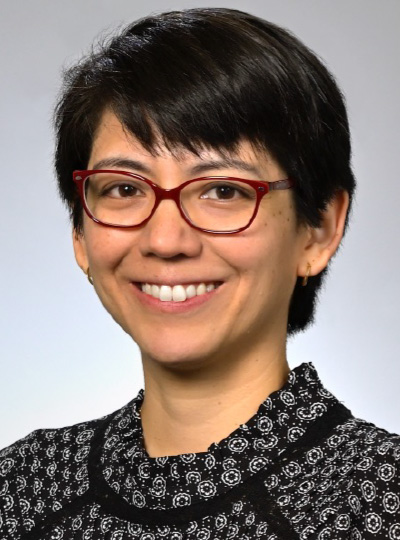
Sandra Susanibar-Adaniya, MD, MS
Assistant Professor, Hematology-Oncology, University of Pennsylvania, Philadelphia, PA
Dr. Sandra Susanibar-Adaniya, MD, MS, is a hematology-oncologist focused on improving outcomes in Multiple Myeloma (MM) by investigating immune surveillance mechanisms to prevent relapse. She completed medical school in Peru and pursued internal medicine residency at the University of Arkansas for Medical Sciences (UAMS), where she served as Chief Resident before joining the Myeloma Institute as a hospitalist. During this time, she contributed to clinical trials and research on plasma cell leukemia, minimal residual disease (MRD), and infectious complications in MM. Dr. Susanibar-Adaniya then completed her hematology-oncology fellowship at the University of Pennsylvania and earned a Master’s in Science and Translational Research, gaining expertise in clinical trial design and execution.
As faculty, she focuses on identifying immune mechanisms linked to sustained disease control in MM and myeloma precursor disease and conducting clinical trials in newly diagnosed and relapsed refractory MM.
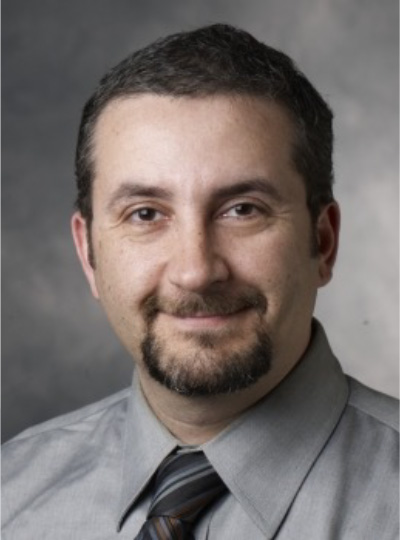
Ash Alizadeh, MD, PhD
Moghadam Family Professor of Medicine, Oncology, and Hematology, Stanford University, Stanford Comprehensive Cancer Center, Stanford, CA
Dr. Ash Alizadeh, MD, PhD is the Moghadam Family Professor of Medicine, Oncology, and Hematology at Stanford University, and leader of the Cancer Genomics Program at Stanford Cancer Institute. His primary research interests are in the development and application of genome technologies and computing (machine learning & data science) to a range of problems in human disease, with special focus on cancer detection, classification, monitoring, and tumor immunology. Dr. Alizadeh's group has helped pioneer a range of noninvasive cancer genomic techniques that enable “liquid biopsies”, including CAPP-Seq, PhasED-Seq, and EPIC-Seq. Using such techniques work from his group focuses on the analysis of circulating nucleic acids to address problems for early cancer detection and noninvasive cancer monitoring, including prediction of therapeutic response. Dr. Alizadeh holds a BS in Biochemistry from UCLA, an MD from Stanford Medical School, and a PhD in Biophysics from Stanford, with additional training at the National Cancer Institute (NCI), the National Institutes of Health (NIH), and the Howard Hughes Medical Institute (HHMI). He has received numerous key awards for his work, including the Scholar Award from the American Society of Hematology (ASH), the Leukemia & Lymphoma Society (LLS), the V-Foundation, and awards from the American Red Cross, Damon Runyon Cancer Research Foundation, and Doris Duke Charitable Research Foundation, among others. He is an elected member of the American Society for Clinical Investigation (ASCI) and the Scientific Advisory Board (SAB) of the Lymphoma Research Foundation (LRF). Dr. Alizadeh is a past-President of the ASH Meeting on Lymphoma Biology, a founding member of the International Lymphoma ctDNA Consortium & Working Group, past-Chair of the ASH Scientific Committee on Genetics & Epigenetics, and past-Chair of the ASCO Scientific Committee on Lymphoma & Myeloma. He is a co-founder of CAPP Medical, CiberMED, and Foresight Diagnostics. He is board certified in Medical Oncology, Hematology, and Internal Medicine, a member of the Stanford Lymphoma Program, and recipient of the Stanford Department of Medicine Research Award (2005). He serves on the Scientific Advisory Board for Cell, and as Scientific Editor for Blood, Cancer Discovery, Blood Cancer Discovery, and JCO Precision Oncology.
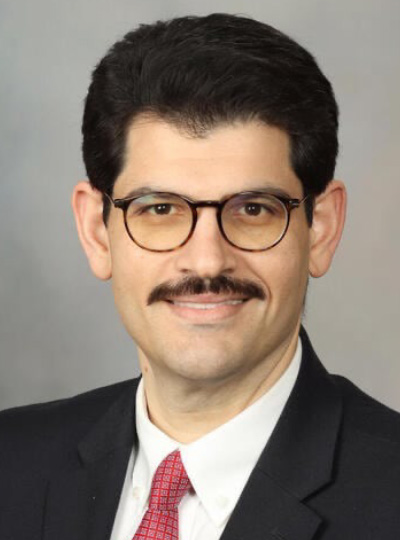
Hassan Alkhateeb, MD
Assistant Professor of Medicine, Mayo Clinic College of Medicine and Science, Consultant, Associate Chair, Bone Marrow Transplant Program, Chair of Quality, Bone Marrow Transplant Program, Division of Hematology, Mayo Clinic, Rochester, MN
Dr. Hassan Alkhateeb, MD, a consultant in the Division of Hematology at Mayo Clinic in Rochester, Minnesota. He is an Assistant Professor of Medicine at Mayo Clinic College of Medicine and Science, and has served as the acting chair of the Myeloid Research Subcommittee and the vice chair of the Bone Marrow Transplant Quality Program.
He obtained his medical degree from the University of Damascus and completed his residency in internal medicine at Indiana University. He also did a fellowship in hematology/oncology and an advanced fellowship in blood and marrow transplant at Mayo Clinic. He is board certified in hematology, medical oncology, and internal medicine. He has received several honors and awards, such as the ASH Abstract Achievement Award, the ASBMT Research Training Program Award, the Marinelli Award of Excellent Patient Care and Professionalism nomination and recognized for Excellence by Minnesota Monthly Magazine.
Dr. Alkhateeb has published 88 peer-reviewed articles in various journals, such as Blood, Blood Cancer Journal, Leukemia Research, and Bone Marrow Transplantation, and has presented his research at national and international conferences, such as ASH, EBMT, and EHA. His clinical and research interests include allogeneic stem cell transplantation, CAR-T cellular therapy, post-transplant related complications, and quality initiatives.
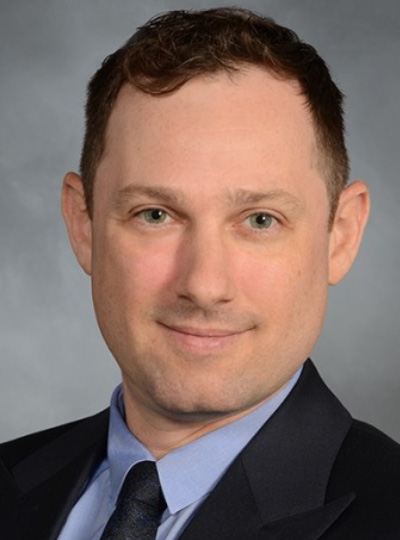
John Allan, MD
Associate Professor of Clinical Medicine, Division of Hematology and Medical Oncology, Weill Cornell Medical College, New York, NY
Dr. John Allan, MD is an Associate Professor of Clinical Medicine in the Division of Hematology and Medical Oncology at Weill Cornell Medicine. He treats all lymphoid malignancies and has a particular interest in improving therapies for patients with CLL and Richter’s Syndrome, which is the focus of his research.
Dr. Allan obtained his medical degree from Saint Louis University. Seeking an internal medicine residency program with particular strength in oncology, Dr. Allan moved to New York in 2009 to train at New York-Presbyterian Hospital, Weill Cornell Medical Campus, where he also completed his hematology and medical oncology fellowship. Upon completion of training Dr. Allan joined the lymphoma faculty in the Division of Hematology and Oncology and is a member of the CLL Research Center.
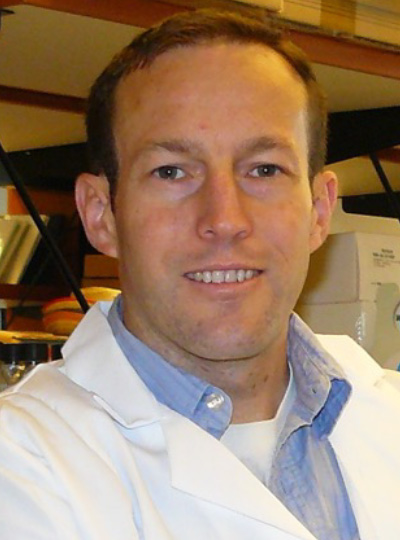
Benjamin Barwick, PhD
Assistant Professor, Department of Hematology and Medical Oncology, Emory University School of Medicine, Atlanta, GA
Dr. Benjamin Barwick, PhD, MS obtained an undergraduate degree and a Master’s of Science in Bioinformatics from the Georgia Institute of Technology prior to conducting his Ph.D. work in the laboratory of Jeremy M. Boss at Emory University where he studied epigenetic regulation of B cell differentiation. Dr. Barwick’s post-doctoral training was conducted with Drs. Lawrence Boise and Paula Vertino, where he studied genetic, epigenetic, and transcriptional mechanisms of multiple myeloma pathogenesis.
Dr. Barwick started his own lab focused on two research directions: 1) understanding mechanisms of IMiD resistance, and 2) investigating epigenetic dysregulation, both in the hematological malignancy multiple myeloma. Both research directions are funded by multiple external awards and Dr. Barwick was recently awarded the Dr. Joseph Moore Excellence in Oncology V Scholar Grant, from the V Foundation.
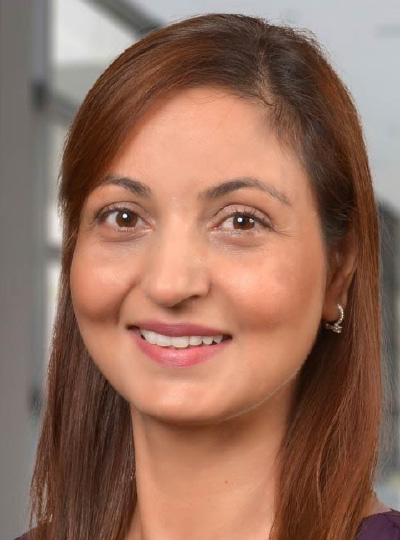
Seema Bhat, MD
Associate Professor, Division of Hematology, The Ohio State University, Columbus, OH
Dr. Seema Bhat, MD, is a hematologist who specializes in treating patients with chronic lymphocytic leukemia (CLL). She was excited to join the OSUCCC – James because of the cutting-edge and exemplary work done by the Leukemia Research program, which has transformed the treatment approach for patients with CLL, leading to the approval of more effective and innovative treatments for this disease. The James is leading the race to cure CLL, and Dr. Bhat is honored to be a member of that team as a clinical investigator focusing on designing and leading clinical trials. She has served as a principal investigator on a number of clinical trials, and also collaborates with laboratory scientists to develop novel therapies for CLL.
Dr. Bhat’s research interests include developing novel targeted therapies for the treatment of CLL with the goal of curing this disease without the need for chemotherapy. Her aim is to improve the quality of life for these patients so that they can lead normal and productive lives without enduring the toxic effects of treatment. In addition to her clinical work, she is an Associate Professor in the Department of Internal Medicine, Division of Hematology at The Ohio State University and has served on a number of national committees, including the NCCN Guidelines panels for cancer- and chemotherapy-induced anemia, chronic lymphocytic leukemia/small lymphocytic lymphoma and hairy cell leukemia. She is privileged to be part of OSUCCC – The James. Dr. Bhat believes in providing personalized care for each patient to ensure better outcomes, and it’s truly rewarding to contribute to this medical and academic community as she works toward the common goal of a cancer-free world.
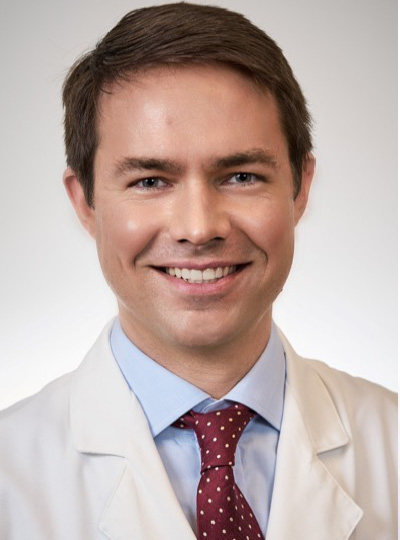
James Blachly, MD
Associate Professor, Division of Hematology, Department of Medicine, Ohio State University Comprehensive Cancer Center, Columbus, OH
Dr. James Blachly, MD is a member of the Leukemia and Hematologic Malignancies Program at the OSUCCC – James and serves as an Associate Professor in the Division of Hematology at The Ohio State University. Dr. Blachly earned his medical degree from the University of Arkansas College of Medicine in Little Rock, Arkansas. He completed his internship and residency in Internal Medicine at the University of Arkansas for Medical Sciences, followed by a fellowship in Hematology and Oncology at the Ohio State University Wexner Medical Center.
Dr. Blachly specializes in the treatment of patients diagnosed with hairy cell leukemia, acute myeloid leukemia (AML), acute lymphocytic leukemia (ALL), and chronic lymphocytic leukemia (CLL). His research focuses on genomics and gene transcription in leukemia, with an emphasis on how mutations and transcriptional attributes can be studied in the context of clinical trials to provide prognostic and predictive information for novel anticancer therapies. A recipient of the National Comprehensive Cancer Network (NCCN) Foundation’s Young Investigator Award, Dr. Blachly received a six-figure grant for his project titled “Genomic Stratification and Prognostication of Adult Acute Myeloid Leukemia by Combination Mutation Status.”
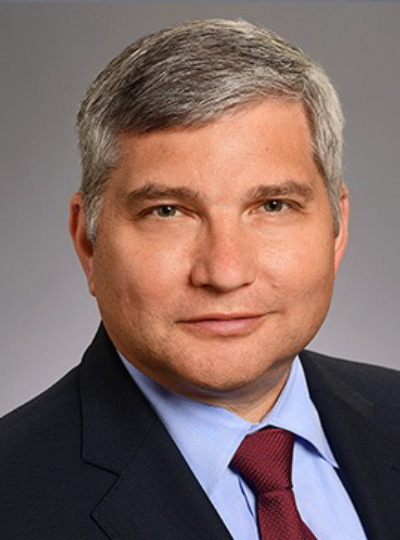
Lawrence Boise, PhD
Professor, R. Randall Rollins Chair in Oncology, Department of Hematology and Medical Oncology, Emory University School of Medicine, Associate Director for Education and Training, Winship Cancer Institute of Emory University, Atlanta, GA
Dr. Lawrence Boise, PhD, is Professor and R. Randall Rollins Chair in Oncology in the Department of Hematology and Medical Oncology at Emory University School of Medicine. Dr. Boise serves as associate director for education and training at Winship Cancer Institute of Emory University in Atlanta, Georgia. He is a renowned researcher in the area of multiple myeloma. Prior to joining Emory, Dr. Boise was at the University of Miami Miller School of Medicine where he was director of the graduate program and professor in the Department of Microbiology and Immunology.
Dr. Boise earned his PhD in pharmacology at the Medical College of Virginia and did postgraduate training at the Howard Hughes Medical Institute at the University of Michigan and University of Chicago. With longstanding funding by the National Cancer Institute as well as foundations such as the Multiple Myeloma Research Foundation and the TJ Martell Foundation, Dr. Boise's research team studies how therapeutic agents such as arsenicals and proteasome inhibitors work to kill myeloma cells.
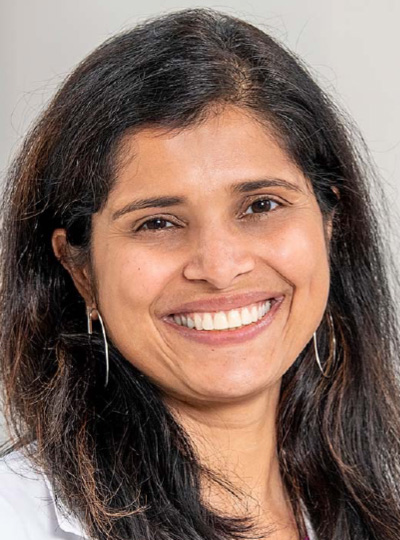
Uma Borate, MBBS
Clinical Section Head, Acute Leukemia, Clinical Research Director, Acute Leukemia, Associate Professor, Division of Hematology, The Ohio State University, Columbus, OH
Dr. Uma Borate, MBBS, is a hematologist specializing in myelodysplastic syndromes (MDS), acute myeloid leukemia (AML), myeloproliferative neoplasms (MPN), and clonal cytopenias of unknown significance. She received her Master of Science in Pathobiology and Molecular Medicine from the University of Cincinnati and completed a fellowship in Hematology/Oncology at the University of Alabama. As a member of the Leukemia and Hematologic Malignancies Program at the OSUCCC – James, her clinical and translational research focuses on the development of novel therapeutics for myeloid diseases, with a particular emphasis on the progression of disease from cytopenia and early-stage MDS to AML. Dr. Borate is the principal investigator for numerous investigator-initiated clinical trials, exploring innovative combination therapies for myeloid malignancies. She is also the national lead and site investigator for several early-phase, industry-supported studies in MDS and AML, both in upfront and relapsed/refractory disease. Her work has been published in prestigious journals.
In addition to her clinical and research contributions, Dr. Borate is an Associate Professor in the Division of Hematology at The Ohio State University, serving as the Acute Leukemia Clinical Section Head and the Disease Group Leader for the Acute Leukemia Clinical Research Group. She pioneered a myeloid malignancy predisposition clinic, which focuses on providing clinical care and research for patients at high risk of developing myeloid malignancies due to hereditary germline mutations or acquired mutations leading to clonal cytopenias. This clinic collaborates closely with genetic counselors to provide evidence-based care for this vulnerable patient population.Dr. Borate is deeply involved in the development of protocols for the NCI cooperative groups in MDS, AML, and the newly created MPN group. She is an active member of several professional organizations, including the Southwest Oncology Group, the American Society of Hematology, the American Society of Clinical Oncology, and the American Association for Cancer Research.Dr. Borate is committed to advancing care through both groundbreaking research and cutting-edge clinical treatments.
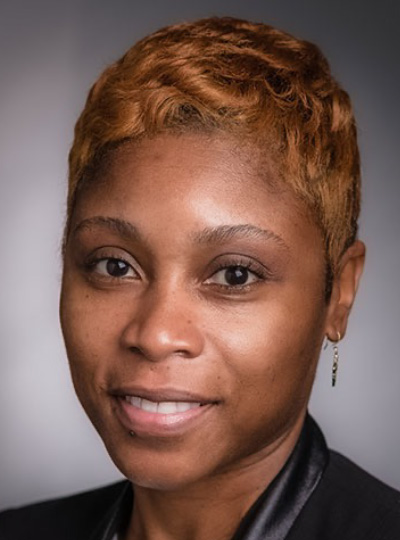
Monique A. Hartley-Brown, MD, MMSc
Assistant Professor of Medicine, Harvard Medical School, Associate Physician, Brigham and Women's Hospital, Physician, Dana-Farber Cancer Institute, Boston, MA
Dr. Monique A. Hartley-Brown, MD, MMSc completed her medical degree with Honors in pharmacology at Langone New York School of Medicine. Her area of clinical and research focus is management and improvement of health outcomes for multiple myeloma patients. Multiple myeloma remains an incurable blood cancer that affects African Americans 2 x more than the white population. Additionally, the discrepancy in access, funding, use of novel therapy, including cellular immunotherapy and autologous stem cell transplantation in Americans of African descent and patients in marginalized communities is abysmally low. Her mission as a female physician, of Afro-American descent is to correct this discrepancy through advocacy, patient empowerment, clinical research which allows for equitable health access and treatment outcomes for these myeloma patient populations. Her clinical research is mainly based on advancement of therapeutic outcomes for patients with relapsed refractory myeloma with the use of immunotherapies and targeted therapies (such as bispecific/trispecific antibodies, antibody-drug conjugates, and modern immune modulating drugs).
Dr. Hartley-Brown is an Associate Physician and Member of the Faculty of Medicine at Harvard Medical School, a Medical Oncologist and Attending Physician at The Jerome Lipper Multiple Myeloma Center at Dana-Farber Cancer Institute.
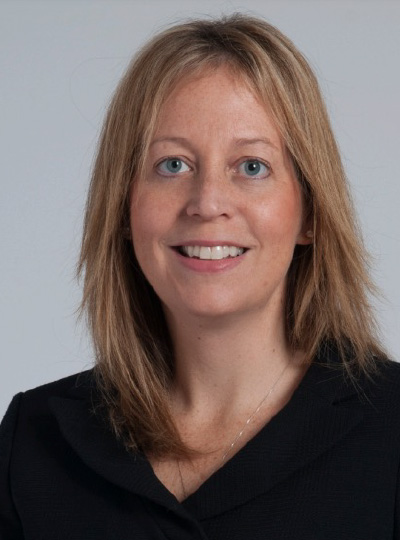
Hetty Carraway, MD, MBA
Vice Chair, Strategy and Enterprise Development, Director, Leukemia Program, Taussig Cancer Institute, Hematology and Oncology and Blood Disorders, Cleveland Clinic, Professor of Medicine, Cleveland Clinic Lerner College of Medicine of Case Western Reserve University, Cleveland, OH
Dr. Hetty Carraway, MD, MBA is Vice Chair for Strategy and Enterprise Development, Director of the Leukemia Program for Taussig Cancer Institute and Professor of Medicine at Cleveland Clinic Lerner College of Medicine. Her clinical focus is the treatment of adult patients with malignant myeloid and lymphoid neoplasms such as myelodysplastic syndromes, acute myeloid leukemia and acute lymphoblastic leukemia. She works as a translational clinical scientist with an emphasis on bringing novel agents to adult patients diagnosed with malignant blood disorders, primarily through phase 1 and 2 clinical trials.
Dr. Carraway received her Bachelor of Arts degree with a double major in neuroscience and biology from Brandeis University. She earned her medical degree from the University of Massachusetts Medical School. She completed her internship and residency as well as a medical oncology fellowship at The Johns Hopkins Hospital. She earned a master’s degree in business administration in the Business of Health from the Carey Business School at Johns Hopkins University.

Andres Chang, MD, PhD
Instructor, Department of Hematology and Medical Oncology, Emory University School of Medicine, Atlanta, GA
Dr. Andres Chang, MD, PhD, is an instructor in the Department of Hematology and Medical Oncology at Emory University School of Medicine. A hematologist, Dr. Chang specializes in treating patients with hematological malignancies including leukemia and lymphoma. He is a member of the multidisciplinary care team in Winship's Bone Marrow and Stem Cell Transplant Center. He is also a member of the Cancer Immunology Research Program at Winship.
Dr. Chang received his PhD in molecular and cellular biochemistry and earned his medical degree from the University of Kentucky in Lexington, Kentucky. He completed his residency in internal medicine and a fellowship in hematology and medical oncology at Emory University School of Medicine in Atlanta, Georgia. Dr. Chang's primary focus is to better understand the changes in the immune system of patients with hematological malignancies and develop ways to exploit this knowledge to improve patient care.
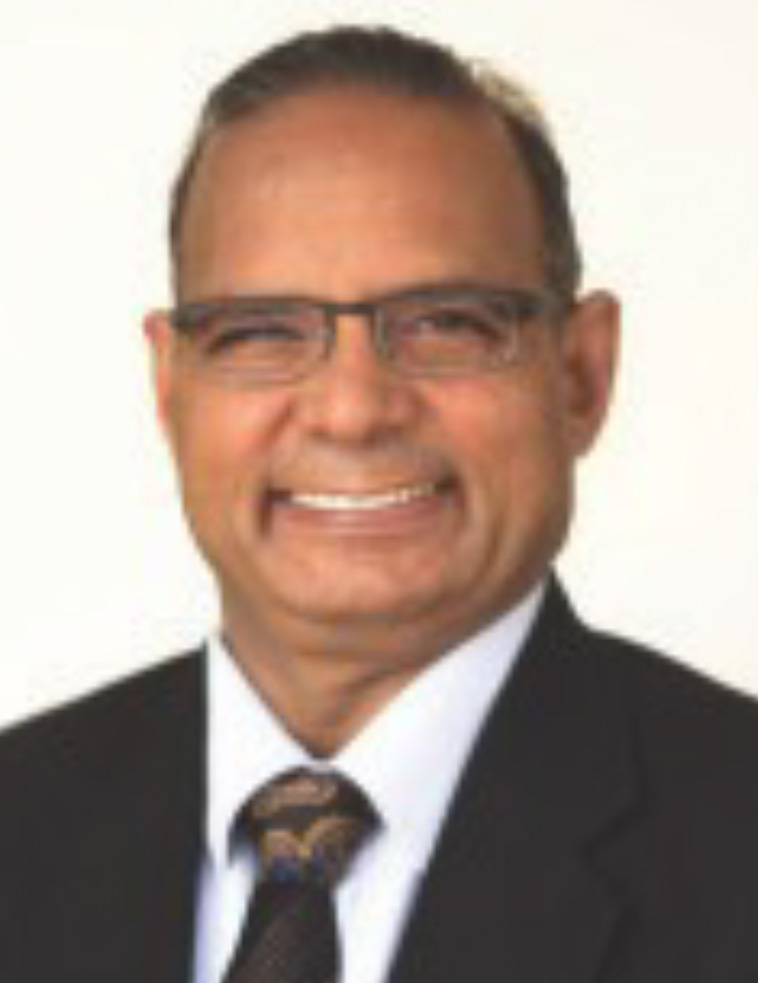
Sant Chawla, MD
Director, Sarcoma Oncology Center, Santa Monica, CADirector, Sarcoma Oncology Center, Santa Monica, CA
Dr. Chawla is the Director of Sarcoma Oncology Center in Santa Monica, CA, where he leads clinical cancer research efforts and conducts groundbreaking clinical research in pancreatic carcinoma, gynecologic tumors, breast cancer, glioblastoma, malignant peripheral nerve sheath tumors, lung cancer, and gastrointestinal tumors. Dr. Chawla graduated from the All-India Institute of Medical Sciences, New Delhi, with a dual degree in medicine and surgery, and completed residency in internal medicine, at the Postgraduate Institute of Medical Sciences, Chandigarh, India. Dr. Chawla completed a fellowship in medical oncology at the University of Texas, MD Anderson Cancer Center in Houston.
Dr. Chawla's commitment to research has yielded significant results. He has conducted over 60 clinical trials, many of which have led to FDA and EMA approval of new cancer drugs. These include medications like carboplatin, trabectedin, pazopanib, eribulin, aprepitant, and denosumab, all playing a crucial role in the fight against cancer. Most recently, Dr. Chawla's leadership at the Sarcoma Oncology Center led to a breakthrough Phase II trial for Aldoxorubicin. This trial demonstrated significantly increased progression-free and overall survival rates without cardiotoxicity, a major improvement over traditional anthracyclines.
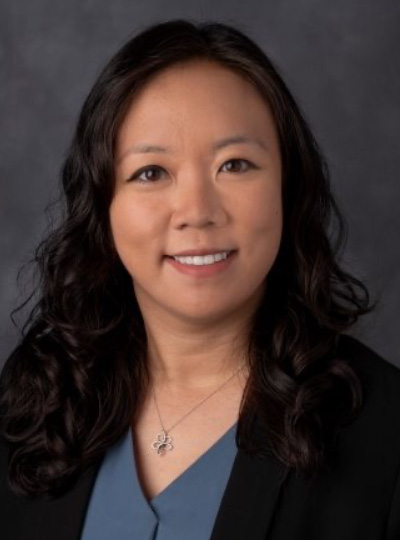
Kelly Chien, MD
Assistant Professor, Department of Leukemia, Division of Cancer Medicine, The University of Texas MD Anderson Cancer Center, Houston, TX
Dr. Kelly Chien, MD, is a physician affiliated with the University of Texas MD Anderson Cancer Center. Dr. Chien’s expertise lies in hematology and oncology, with a focus on cancers of the blood, such as leukemia and myelodysplastic syndromes. Dr. Chien earned her MD from Baylor College of Medicine in 2013. In 2016, She completed her residency in Internal Medicine from University of Texas Southwestern Medical Center. Dr. Chien pursued a fellowship in Hematology/Oncology at the University of Texas MD Anderson Cancer Center from 2019 to 2020. During her fellowship, she received specialized training in treating blood cancers and managing patients undergoing bone marrow transplants.
At MD Anderson Cancer Center, Dr. Chien is involved in cutting-edge treatments, including stem cell transplantation and cellular therapy. Her research is likely focused on improving outcomes for patients with hematologic malignancies, contributing to the ongoing advancement of cancer treatments. Dr. Chien’s work is critical in advancing therapies that improve survival rates and the quality of life for cancer patients.
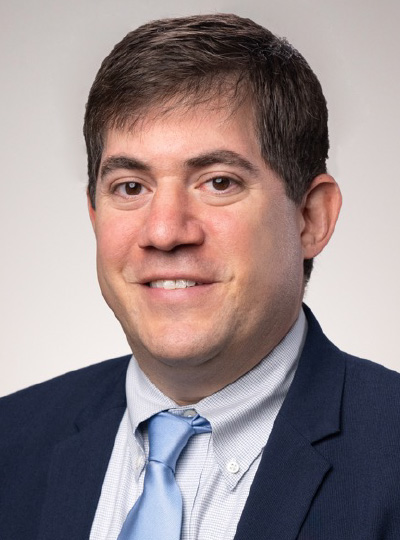
Jonathon Cohen, MD, MS
Professor, Department of Hematology and Medical Oncology, Co-Director, Lymphoma Program Emory University School of Medicine, Lymphoma Disease, Team Lead Director, Lymphoma Clinical Trials Working Group, Winship Cancer Institute of Emory University, Atlanta, GA
Dr. Jonathon Cohen, MD, MS, is a Professor in the Department of Hematology and Medical Oncology and the Co-Director of the Lymphoma Program at Emory University School of Medicine. Board certified in hematology and medical oncology, Dr. Cohen treats Hodgkin's and non-Hodgkin's lymphoma patients and is the Lymphoma Disease Team Lead and Director of the Lymphoma Clinical Trials Working Group at Winship Cancer Institute.Dr. Cohen is a leading expert in CAR T-cell therapy, an emerging new immunotherapy for some forms of lymphoma. Dr. Cohen has been recognized as a promising young investigator as evidenced by his selection to participate in the ASCO/AACR Methods in Clinical Cancer Research workshop, American Society of Hematology Clinical Research Training Institute, and the Lymphoma Research Foundation Clinical Research Mentorship Program.
Dr. Cohen earned his undergraduate degree at Emory University and received his medical degree at the University of Florida College of Medicine. He completed a residency in internal medicine and fellowship in hematology and medical oncology at The Ohio State University in Columbus, Ohio. During his fellowship, he also completed a master's degree in medical science, gathering additional training in the conduct of clinical and translational research.
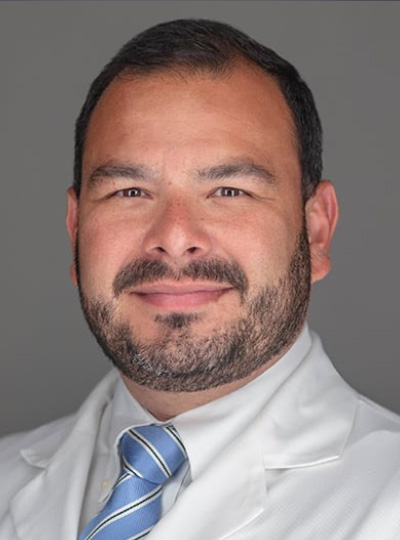
Ariel Grajales-Cruz, MD
Assistant Professor, University of South Florida, Assistant Member, Department of Malignant Hematology, Multiple Myeloma Section, H Lee Moffitt Cancer Center, Tampa, FL
Dr. Ariel Grajales-Cruz, MD is an Assistant Member in the Department of Malignant Hematology at the H Lee Moffitt Cancer Center and an Assistant Professor at the University of South Florida. He received his MD from Universidad Central del Caribe in Bayamon, Puerto Rico. He completed an Internal Medicine Residency at Veterans Administration Caribbean Healthcare System, where he also served as Chief Resident. Most recently, he completed a Hematology and Medical Oncology Fellowship at Moffitt Cancer Center/University of South Florida.
Dr. Grajales-Cruz’s clinical and research interests include plasma cell dyscrasias, such as multiple myeloma, monoclonal gammopathy of undetermined significance, plasmacytoma, primary systemic amyloidosis and Waldenstrom macroglobulinemia.
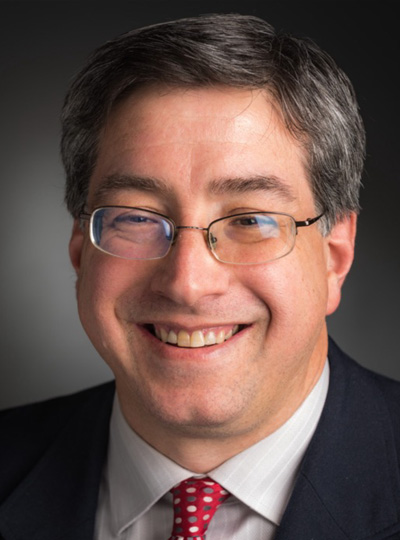
Daniel DeAngelo, MD, PhD
Professor of Medicine, Harvard Medical School, Chief, Division of Leukemia Institute Physician, Dana Farber Cancer Institute, Boston, MA
Dr. Daniel DeAngelo, MD, PhD is currently a Professor of Medicine at Harvard Medical School and an institute physician at Dana Faber Cancer Institute. Dr. DeAngelo is involved with clinical protocols designed to treat patients with de novo or relapsed acute myelogenous leukemia (AML), acute lymphoblastic leukemia (ALL) and chronic myelogenous leukemia (CML) as well as novel therapeutic approaches for the patient with myelodysplasia. His research interests include novel immunotherapeutic approaches to the treatment of acute myelogenous leukemia and myelodysplasia. Further, he is developing leukemia tumor vaccines from patients with AML or advanced myelodysplasia which will be assayed for immunological and serological responses.
Dr. DeAngelo received his MD and PhD from Albert Einstein College of Medicine in 1993, followed by residency in internal medicine at Massachusetts General Hospital. He served a clinical fellowship in hematology and oncology at the Brigham and Women's Hospital and Dana-Farber Cancer Institute, where he joined the staff in 1999.
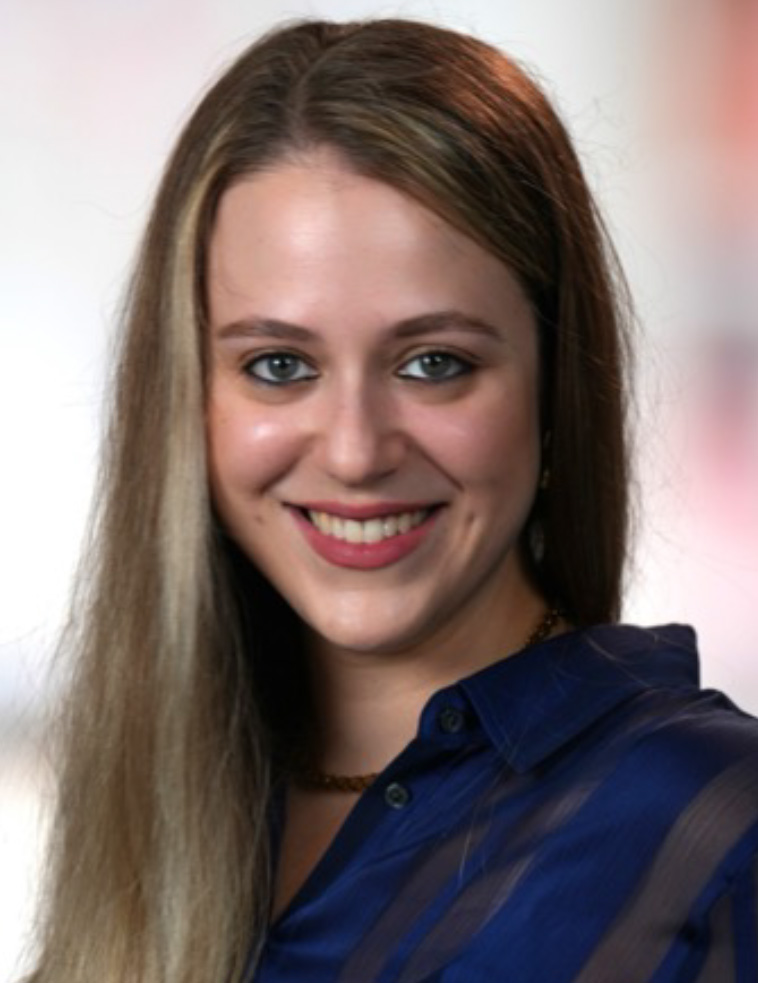
Danai Dima, MD
Assistant Professor, Department of Hematology-Oncology, University of Washington, Fred Hutchinson Cancer Center, Seattle, WA
Dr. Danai Dima, MD is an Assistant Professor of Hematology and Medical Oncology at the Fred Hutchinson Cancer Center of the University of Washington in Seattle. She earned her medical degree from the University of Athens School of Health Sciences in Greece, completed her internal medicine residency at Tufts Medical Center, and pursued fellowship training in Hematology and Oncology at the Cleveland Clinic. She specializes in plasma-cell dyscrasias, including multiple myeloma and light-chain amyloidosis. Her research focuses on outcomes of patients with multiple myeloma treated with chimeric antigen receptor T-cell therapies and bispecific antibodies.
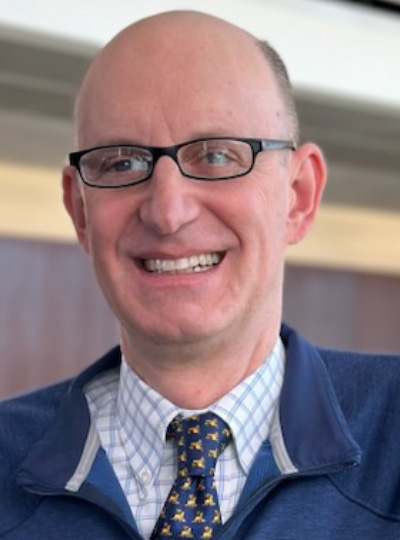
Jonathan Friedberg, MD, MMSc
Samuel Durand Professor of Medicine, University of Rochester, Director, James P. Wilmot Cancer Institute, Rochester, NY
Dr. Jonathan Friedberg, MD, M.M.Sc. is Samuel Durand Professor of Medicine at the University of Rochester, and Director of the James P. Wilmot Cancer Institute. Dr. Friedberg received his medical degree from Harvard Medical School. His postgraduate training included an internship and residency at Massachusetts General Hospital. He also completed a medical oncology and hematology fellowship at Dana-Farber/Partners Cancer Care in Boston. Dr. Friedberg also has an M.M.Sc. degree from Harvard Medical School in clinical investigation.
His research interests focus on development of novel therapies for patients with lymphoma. He is chair of the lymphoma committee in the SWOG NCTN group, and serves Editor-in-Chief at Journal of Clinical Oncology. He was awarded the Scholar in Clinical Research award from the Leukemia & Lymphoma Society, is a funded investigator from NCI, and has chaired the education program of the American Society of Hematology annual meeting.
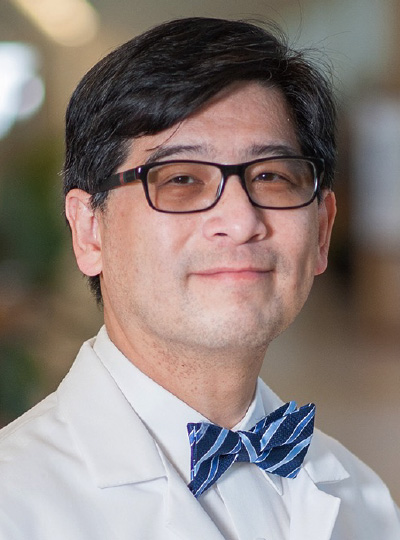
Henry Fung, MD, FACP, FRCPE
Chair & Professor, Department of Bone Marrow Transplant and Cellular Therapies, Fox Chase Cancer Center, Philadelphia, PA
Dr. Henry Fung, MD, FACP, FRCPE, is Chair and Professor of the Department of Bone Marrow Transplant and Cellular Therapy at Fox Chase Cancer Center. He earned his medical degree (MBChB) from the Faculty of Medicine at the Chinese University of Hong Kong in 1987. He subsequently completed his residency in Internal Medicine and Hematology/Oncology at Queen Mary Hospital, Hong Kong University. He continued his advanced training with a Hematology/Oncology fellowship at Queen Mary Hospital and later served as a Clinical Fellow in Hematology at Vancouver Hospital and Health Science Center, British Columbia Cancer Control Agency, University of British Columbia, Canada, from 1992 to 1994. Dr. Fung’s clinical and research focus centers on allogeneic stem cell transplantation using alternative donors. He is widely recognized for his expertise in the treatment and transplantation of patients with multiple myeloma, lymphoma, leukemias, myelodysplastic syndromes, myeloproliferative disorders, and myelofibrosis.
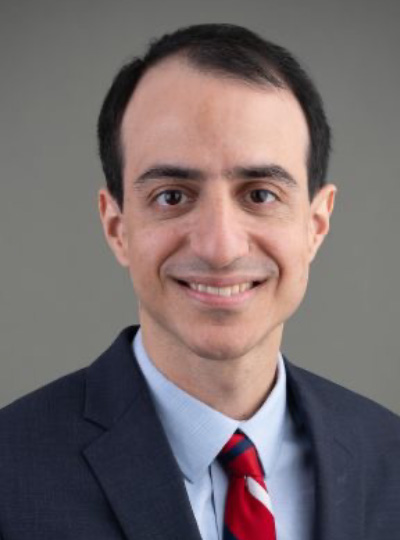
Zhubin Gahvari, MD, MS
Assistant Professor, Department of Medicine, University of Wisconsin School of Medicine and Public Health, Madison, WI
Dr. Zhubin Gahvari, MD, MS, is a UW Health hematologist and Assistant Professor in the Department of Medicine at the University of Wisconsin School of Medicine and Public Health. He treats patients with a variety of blood conditions and specializes in plasma cell disorders, leukemia (blood cancer), stem cell transplants and cellular therapies.
Dr. Gahvari believes that listening to his patients is one of the most important things he can do for their care. He strives to connect with each of his patients to understand their life experiences, values and goals to find treatment options that best meet their medical and personal needs. He considers it an honor and privilege to hear his patients’ unique stories. Dr. Gahvari is excited by new therapies in the field of blood disorders. Using the latest advancements in medicine and immune therapy, he can treat patients in a way not possible a decade ago. He enjoys seeing the difference these treatments make in the lives of his patients and being able to offer hope to someone with a serious blood disorder.
Dr. Gahvari attended medical school at the University of Virginia School of Medicine. He completed his residency at the University of Wisconsin Hospitals and Clinics in Madison, Wisconsin, where he also pursued his fellowship training.
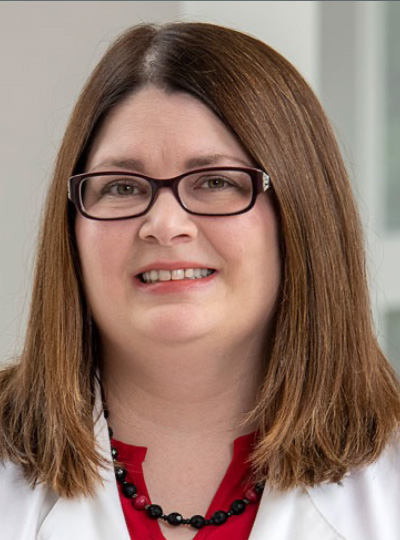
Nicole Grieselhuber, MD, PhD
Assistant Professor, Division of Hematology, Department of Internal Medicine, The Ohio State University, Columbus, OHAssistant Professor, Division of Hematology, Department of Internal Medicine, The Ohio State University, Columbus, OH
Dr. Nicole Grieselhuber, MD, PhD, is an Assistant Professor in the Division of Hematology, Department of Internal Medicine at The Ohio State University. She is a medical oncologist specializing in the treatment of blood cancers, including acute myeloid leukemia (AML) and myelodysplastic syndrome. Dr. Grieselhuber earned her medical degree from Washington University School of Medicine in St. Louis. She completed her fellowship in Hematology and Oncology at The Ohio State University.
As a member of the Leukemia and Hematologic Malignancies Program at the OSUCCC – James, Dr. Grieselhuber’s research focuses on myeloid malignancies, with an emphasis on understanding leukemia development and response to novel targeted therapies. Her current projects include preclinical investigations of BET inhibitors in combination with other targeted therapies in AML models, as well as studies on the role of BET proteins in leukemogenesis. Her work extensively utilizes primary patient samples from the Leukemia Tissue Bank for in vitro assays and patient-derived xenografts. In addition to her clinical and research efforts, Dr. Grieselhuber is an active member of the American Society of Clinical Oncology, the American Society of Hematology, and the American College of Physicians.
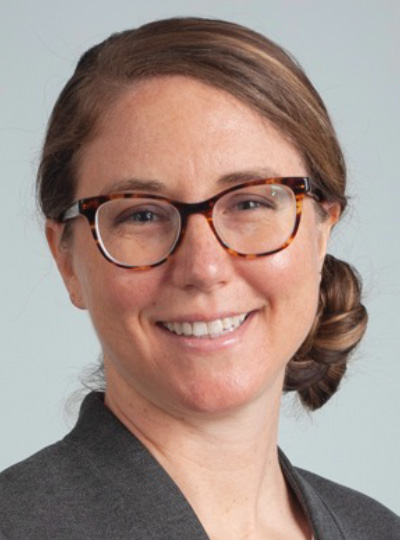
Julie Erika Haydu, MD, PhD
Assistant Professor of Medicine, Harvard Medical School, Assistant Physician, Massachusetts General Hospital, Boston, MA
Dr. Julie Erika Haydu, MD, PhD, is a physician in the Lymphoma Program at the Mass General Cancer Center. She is also Assistant Professor at Harvard Medical School. Dr. Haydu earned her medical degree from Columbia University. She also earned a Ph.D. in cancer genetics at Columbia University. She completed a residency in Internal Medicine at Brigham and Women’s Hospital in Boston, followed by a fellowship in Hematology and Oncology at the Dana-Farber Cancer Institute / Massachusetts General Hospital, where she served as Chief Fellow.
Her clinical and research interests are in B-cell lymphomas with a particular emphasis on novel immune therapies and chemotherapy-sparing approaches. She is active in clinical research, serving as the site Principal Investigator of multiple studies and designing her own investigator-initiated studies. She is leading Mass General efforts to implement an outpatient administration program for lymphoma bispecific antibodies, as well as to characterize mechanisms of response and resistance to bispecific antibodies. She has received several grants to support her work. She has participated in the ASCO/AACR Methods in Clinical Cancer Research Workshop and the Lymphoma Research Foundation Scientific Mentoring Program. She recently received the Dana-Farber Cancer Institute / Massachusetts General Hospital Fellowship Excellence in Teaching Award.
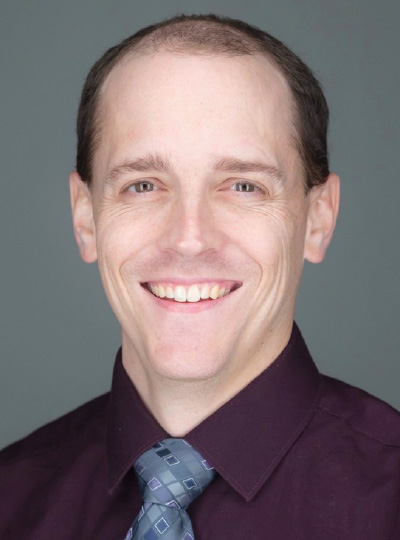
Anthony Hunter, MD
Assistant Professor, Department of Hematology and Medical Oncology, Emory University School of Medicine, Medical Director, Immediate Care Center, Winship Cancer Institute of Emory University, Atlanta, GA
Dr. Anthony Hunter, MD, is an Assistant Professor in the Department of Hematology and Medical Oncology at Emory University School of Medicine. A hematologist, Dr. Hunter specializes in treating patients with leukemia and other myeloid malignancies including myeloproliferative neoplasms, myelodysplastic syndromes, myelodysplastic/myeloproliferative neoplasms and systemic mastocytosis. Dr. Hunter received his Medical Degree from Medical College of Wisconsin in Milwaukee, Wisconsin. He completed his residency in internal medicine at Emory University School of Medicine in Atlanta, Georgia. He completed a fellowship in hematology and medical oncology at H. Lee Moffitt Cancer Center and Research Institute in Tampa, Florida, where he served as Chief Fellow in his final year.
Dr. Hunter's research interests focus on understanding the molecular drivers of myeloid malignancies in order to improve prognostication and develop novel treatment strategies. He participates in clinical trials evaluating novel therapies in the treatment of myeloproliferative neoplasms, myelodysplastic syndromes and myelodysplastic/myeloproliferative neoplasms. He is also co-investigator of a large, international effort to develop a novel prognostic system in chronic myelomonocytic leukemia.
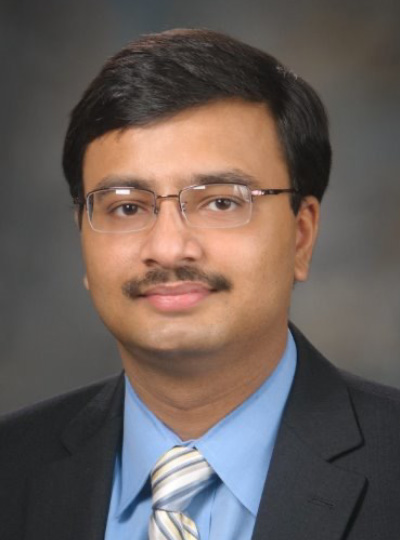
Nitin Jain, MD
Professor of Medicine, Director, Cellular Therapy Program, Department of Leukemia, Division of Cancer Medicine, The University of Texas MD Anderson Cancer Center, Houston, TX
Dr. Nitin Jain, MD, is a Professor of Medicine in the Department of Leukemia at The University of Texas MD Anderson Cancer Center. He earned his medical degree from AIIMS, New Delhi, India in 2002. He completed Internal Medicine residency at the Medical College of Wisconsin, Milwaukee. He then completed clinical fellowship in Leukemia at MD Anderson followed by a Leukemia research fellowship at Memorial Sloan-Kettering Cancer Center. He then pursued fellowship in Hematology/Oncology at The University of Chicago. He joined as a faculty in the Department of Leukemia at MD Anderson in July 2012. Dr. Jain treats patients with acute and chronic leukemias with focus on patients with CLL and ALL. Dr. Jain's research interests focus on new drug development for patients with leukemia, especially CLL and ALL. Since 2021, he has also served as Director, Leukemia CAR-T Program within the Department of Leukemia, MD Anderson.
Dr. Jain is Principal Investigator of several investigator-initiated phase I-II clinical trials, including combination targeted therapies (ibrutinib and venetoclax) in CLL, checkpoint inhibitor in Richter transformation, JAK2 inhibitor ruxolitinib in Ph-like ALL, novel CD22 antibody drug conjugate in B-ALL, venetoclax + chemotherapy in B- and T-ALL, ponatinib in T-ALL, and off-the-self allogeneic CARTs in B-ALL. The trial combining ibrutinib and venetoclax was published in New England Journal of Medicine in 2019. He has published papers in prominent journals including NEJM, Lancet, JAMA Oncology, Journal of Clinical Oncology, Blood, Clinical Cancer Research, Cancer, Leukemia & Lymphoma, and others. He has won many awards during his career including Sardari Lal Kalra Gold Medal in Microbiology from AIIMS and Merit Award from the American Society of Clinical Oncology (ASCO). He received High-Impact Clinical Research Support Award from MD Anderson Cancer Center in the year 2014 and 2016. He has served as faculty on American Society of Hematology CRTI workshop from 2017-2019. He is recipient of Sabin Family Foundation Award in 2018. In 2020, he received MD Anderson Faculty Scholar award. In 2022, he received Leukemia and Lymphoma Society (LLS) Scholar in Clinical Research award as well as LLS Translational Research Program (TRP) award.
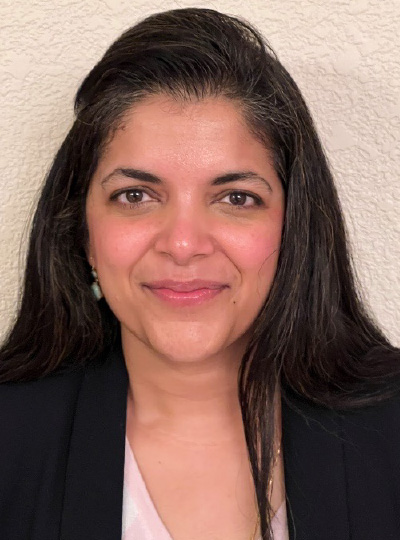
Manali Kamdar, MD
Associate Professor of Medicine, Clinical Director of Lymphoma Services, Morton and Sandra Saffer Endowed, Chair in Hematology Research, Division of Hematology, Department of Medicine, University of Colorado School of Medicine, Aurora, CO
Dr. Manali Kamdar, MD obtained her medical degree from Mumbai, India, and subsequently completed a residency in Internal Medicine and a fellowship in Hematology and Oncology at the East Carolina University in Greenville, North Carolina. She then completed another fellowship in lymphoid malignancies and bone marrow transplantation at Stanford University. Subspecializing in lymphomas appealed to her because of the clinical heterogeneity with each subtype, scientifically stimulating biology, opportunity to tailor therapeutics, and the endless possibilities of new drug development. Currently, Dr. Kamdar is an Associate Professor of Medicine at the University of Colorado School of Medicine and serves as the Clinical Director of the lymphoma program.
Her clinical research interests include B-cell lymphomas, particularly refractory diffuse large B-cell lymphoma, mantle cell lymphomas, and other indolent lymphomas. In addition to seeing patients with lymphoma in clinic, her research involves conducting clinical trials of novel drugs, including immunotherapy and combinations in these diseases. She has had the opportunity to serve in organizations at the national level. This includes working with the National Comprehensive Cancer Network guidelines committee and Southwest Oncology Group lymphoma committee, where she serves as a cadre member of the chronic lymphocytic leukemia and lymphoma working groups, respectively. Dr. Kamdar’s goal is to develop nuanced approaches of personalized medicine in lymphoid malignancies, and she is currently collaborating with several clinical as well as laboratory-based investigators in the United States. Her eventual hope is to make these fascinating discoveries efficacious, durable, and affordable so that they have a far-reaching impact on patients everywhere.
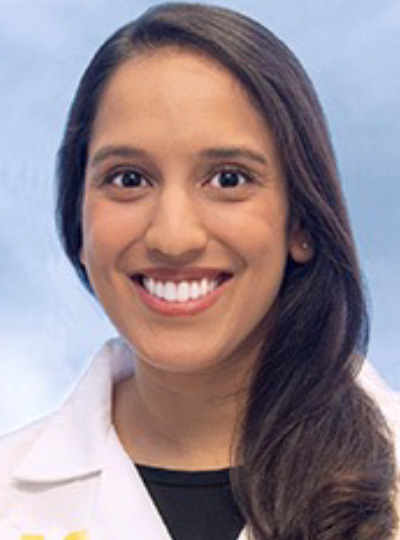
Yasmin H. Karimi, MD
Clinical Assistant Professor, Division of Hematology/Oncology, University of Michigan, Rogel Cancer Center, Ann Arbor, MI
Dr. Yasmin H. Karimi, MD is a Clinical Assistant Professor of Medicine in the Division of Hematology/Oncology at the University of Michigan. Dr. Karimi received her undergraduate degree from Johns Hopkins University, her medical degree from the University of Pennsylvania School of Medicine and went on to complete her internal medicine residency and chief residency at the University of Chicago. She completed her Hematology & Oncology fellowship at Stanford University before joining the lymphoma group at the University of Michigan Rogel Cancer Center.
Her research focus is on conducting clinical trials in B cell lymphomas including diffuse large B cell lymphoma, mantle cell lymphoma, follicular lymphoma, marginal zone lymphoma, Hodgkin's lymphoma and CLL/SLL. Dr. Karimi is a member of the Non-Hodgkin Lymphoma Guidelines panel for the National Comprehensive Cancer Center Network (NCCN). Dr. Karimi finds joy in connecting with patients and families and is honored to be a part of their care team in their cancer journey. She has personal experience knowing how challenging it can be to navigate the decisions and treatments of indolent and aggressive lymphomas. Her goal is to provide meticulous and compassionate patient care while incorporating the most up to date understanding of the disease and latest advances in treatments to each patient's case.

Reem Karmali, MD, MS
Associate Professor of Medicine, Division of Hematology and Oncology, Northwestern University Feinberg School of Medicine, Robert H. Lurie Comprehensive Cancer Center, Chicago, IL
Dr. Reem Karmali, MD, MS, is an Associate Professor of Medicine in the Division of Hematology and Oncology at Northwestern University Feinberg School of Medicine and a Member of the Robert H. Lurie Comprehensive Cancer Center.
Dr. Karmali received her medical degree from the University of Western Ontario in Canada and her Master of Science degree in clinical research from Rush University in Chicago. She completed an internal medicine residency and a hematology and oncology fellowship at Rush University Medical Center. Dr. Karmali’s overarching goal is to improve outcomes for patients with lymphoma though practice and research. Her clinical research focuses on identifying novel targets for drug design and development. Her translational research explores on the role of metabolic dysregulation in lymphomagenesis and resistance to therapy. She has published widely, authoring more than 100 peer-reviewed journal articles.
Dr. Karmali has served on the ASCO eLearning Review Panel and as an ASH Ambassador to promote DEI in the field of Hematology. She currently serves as the Chair of the Steering Committee for the LRF Chicago Chapter of Lymphoma Rounds, a member of the LRF MCL Committee, the ASH Committee on Quality and the Hematologic Malignancies Guideline Advisory Group for ASCO. She also sits on the NCCN Histiocytosis Panel.
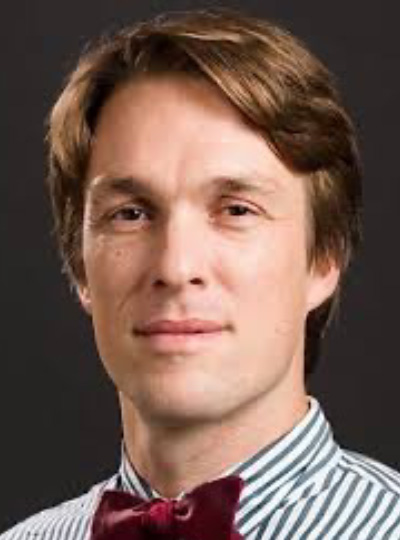
Gottfried R. von Keudell, MD
Director of Clinical Research, Lymphoma, Beth Israel Deaconess Medical Center, Boston, MADirector of Clinical Research, Lymphoma, Beth Israel Deaconess Medical Center,
Boston, MA
Dr. Gottfried R. von Keudell, MD, is the Director of Clinical Research in Lymphoma at Beth Israel Deaconess Medical Center. Dr. von Keudell earned his medical degree from the University Medical Center Hamburg-Eppendorf. He completed his residency at the University of Chicago Medical Center, where he also pursued a fellowship in hematology and oncology.
Dr. von Keudell specializes in the treatment of B-cell lymphomas, Hodgkin lymphoma, non-Hodgkin lymphoma and chronic lymphocytic leukemia with a particular focus on CAR T-cell therapy and cellular therapy.
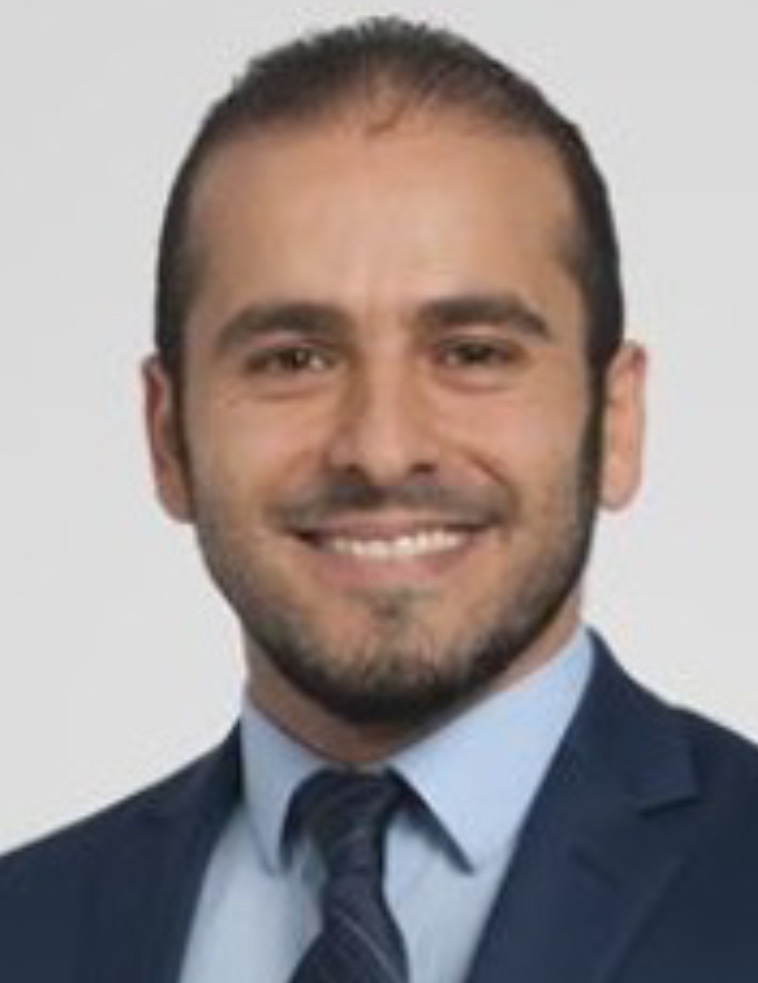
Jack Khouri, MD
Associate Professor, Cleveland Clinic Lerner College of Medicine, Case Western Reserve University, Associate Staff, Hematology and Medical Oncology, Cleveland Clinic Taussig Cancer Center, Cleveland, OH
Dr. Jack Khouri, MD, is Associate Staff in Hematology and Medical Oncology at the Cleveland Clinic Taussig Cancer Center and Associate Professor at the Cleveland Clinic Lerner College of Medicine of Case Western Reserve University. He completed his medical degree at the University of Balamand in Lebanon, followed by a residency at Tufts University School of Medicine, and fellowship in Hematology/Oncology at Cleveland Clinic.
He is a clinician in the myeloma program, blood and marrow transplant program, and the section of apheresis medicine. In his current role, Dr. Khouri cares for patients with plasma cell disorders (PCDs) in the outpatient setting and attends to the lymphoma/myeloma and bone marrow transplant inpatient services. He also oversees various procedures in the cancer center’s apheresis unit, ranging from leukapheresis for mononuclear cell collections for hematopoietic cell transplantation (HCT) and CAR T-cell therapy to inpatient and outpatient plasma exchange and photopheresis procedures for a variety of medical conditions across multiple specialties.
Dr. Khouri is passionate about clinical research, clinical trials, and medical education. He dedicates most of his research time to designing clinical trials and collaborating with pharmaceutical companies on real-world observational studies and trials in PCDs and HCT. Dr. Khouri has a special interest in POEMS syndrome and has developed several PCD clinical pathways within the myeloma program, including those for POEMS syndrome, MGUS, MGRS, and smoldering myeloma. An active educator and mentor, Dr. Khouri has received teaching awards from Tufts University, Cleveland Clinic, and its hematology fellowship program.
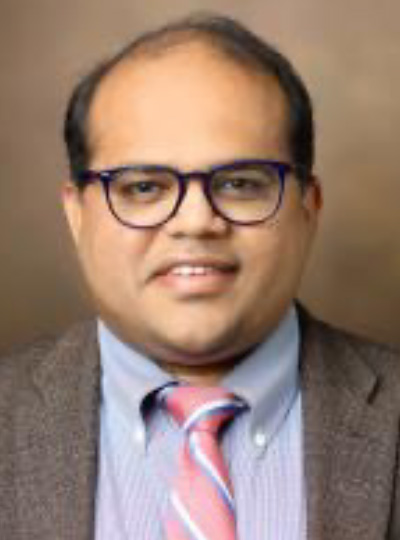
Ashwin Kishtagari, MD
Assistant Professor of Medicine, Hematology and Oncology, Vanderbilt University Medical Center, Nashville, TN
I am devoted to becoming a clinical and translational investigator, the combination of a passion for caring for patients and pursuing my keen interest in clinical and translational research. My love for science has always been rooted in the belief that knowledge gained in the scientific arena can translate into better medical treatments and meaningful outcomes for patients. I am passionate about genomics and drug development in clonal hematopoiesis, CCUS, and MPNs.
My prior research experience in the lab of Dr. Ross Levine focused on clonal hematopoiesis, and I served a pivotal role in the characterization of a large cohort of patients in whom clonal hematopoiesis has been identified on “matched normal” blood sequencing data from next-generation sequencing protocol. Given my strengths in molecular genetics and hematopoiesis, it was a natural progression upon beginning my fellowship at the Cleveland Clinic to join the laboratory of Dr. Yogen Saunthararajah, whose prior work was developing non-cytotoxic epigenetic therapy for myeloid malignancies is well known. Under the mentorship of Dr. Saunthararajah, I developed first-in-class lead series that inhibits the HELICc-DExx domain of ISWI family ATP-dependent chromatin remodelers for the goal of non-cytotoxic (p53-independent, normal hematopoietic stem cell sparing) differentiation-restoring therapy of myeloid malignancies. Now, in collaboration with Alex Bick's lab at Vanderbilt University Medical Center, my goal is to leverage large-scale genomic data to identify new targets, drug indications, and drug response biomarkers in this era of precision medicine.
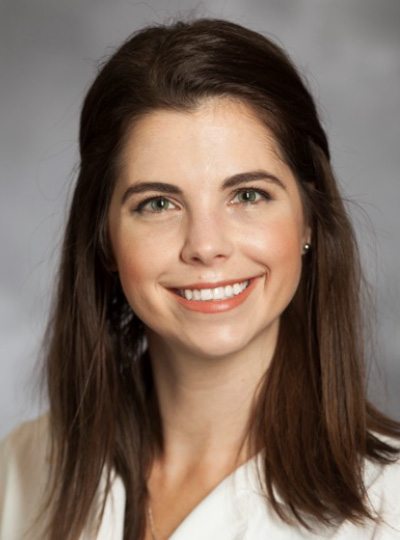
Jean Koff, MD, MSc
Associate Professor, Department of Hematology and Medical Oncology, Emory University School of Medicine, Director, Lymphoma Program Translational Research Team, Winship Cancer Institute of Emory University, Atlanta, GA
Dr. Jean Koff, MD, MSc, is an Associate Professor in the Department of Hematology and Medical Oncology and Director of the Lymphoma Program’s Translational Research Team at Winship Cancer Institute of Emory University. Her clinical expertise in lymphoma is complemented by her research characterizing the immunologic and genetic factors that contribute to poor outcomes in patient populations under-represented in most lymphoma studies, such as African Americans and organ transplant recipients. Dr. Koff served as the 2024 Chair of the Scientific Committee on Lymphoid Neoplasia for the American Society of Hematology, and she leads a multi-institutional Specialized Center of Research program in lymphoma disparities funded by the Leukemia & Lymphoma Society. Her work has also been funded by the Lymphoma Research Foundation, the American Association for Cancer Research, the American Cancer Society, and the NIH.
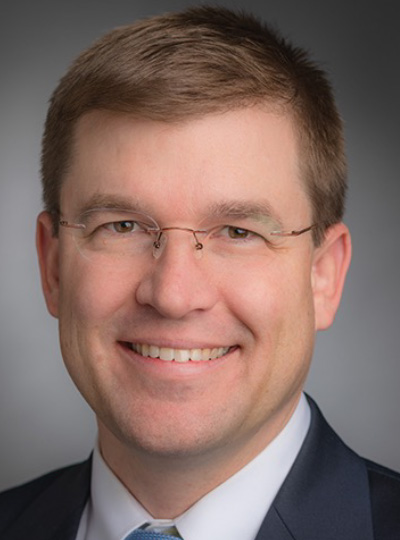
Andrew Lane, MD, PhD
Associate Professor of Medicine, Harvard Medical School, Director, Blastic Plasmacytoid Dendritic Cell Neoplasm Center, Physician, Dana Farber Cancer Institute, Boston, MA
Dr. Andrew Lane, MD, PhD is currently an Associate Professor of Medicine at Harvard Medical School and an institute physician at Dana Faber Cancer Institute. Dr. Lane received his MD and PhD degrees from Washington University. He completed his residency in internal medicine at Brigham and Women's Hospital, and his fellowships in hematology and medical oncology at Dana Farber Cancer Institute (DFCI).
His research focuses on developing new treatments for leukemia by studying the genetic changes that occur in cancer and how they alter the normal development of blood cells. Dr. Lane’s laboratory focuses on hematopoietic stem/progenitor cell biology and leukemia. The lab investigates genetic and epigenetic alterations that lead to aberrant signaling, changes in chromatin state, and functionally relevant modifications to the transcriptome in leukemia. The primary goal is to characterize the abnormal biology of transformed blood cells to develop novel therapeutic strategies. Dr. Lane’s research encompasses acute myeloid leukemia (AML), acute lymphoid leukemia (ALL), and blastic plasmacytoid dendritic cell neoplasm (BPDCN). His team is also interested in understanding sex bias in cancer genomes and how these differences translate to variations in malignancy incidence and therapy outcomes. Additionally, the lab studies resistance to leukemia therapies, including in leukemia stem cells and measurable residual disease (MRD), through genomic characterization—such as DNA and RNA sequencing, including single-cell approaches—of patient samples collected before and during progression after specific treatments. Dr. Lane’s lab discoveries have led to new combination therapies that overcome targeted therapy resistance. He now leads several phase 1-2 clinical trials to test these strategies in patients with blood cancer.
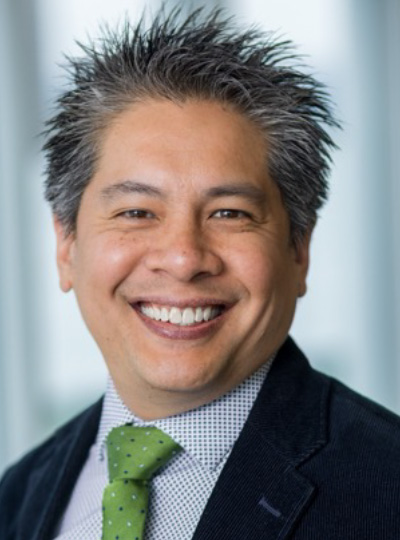
Frederick Lansigan, MD
Associate Professor of Medicine, Associate Professor of Dermatology, Dartmouth Geisel School of Medicine, Program Director, Hematology and Oncology Fellowship, Director of Clinical Trials in Hematology, Dartmouth-Hitchcock Norris Cotton Cancer Center, Lebanon, NH
Dr. Frederick Lansigan, MD graduated from Yale College and earned his MD from SUNY Downstate in Brooklyn, NY. He completed residency at Albert Einstein Montefiore Medical Center in Bronx, NY, and completed his Hematology/Oncology Fellowship at the Yale Cancer Center. He joined Dartmouth Cancer Center (DCC) in 2009 and has been leading clinical research and education efforts since joining.
As the Director for Clinical Trials and Clinical Research in Hematology, Dr. Lansigan has helped ensure access to clinical trials for rural populations. He is also a member of the Lymphoma Committee of the Alliance Cancer Network of Clinical Trials. He has clinical and research expertise in Indolent Lymphomas including Follicular Lymphoma, Cutaneous Lymphomas, and mentors Global Health projects in Rwanda and Peru. In addition, he currently serves as the Program Director of the Hematology and Oncology Fellowship at DCC. His vision for the fellowship program is to train conscientious physician-researchers, educators, health champions, and clinicians who will continue to advance the care of cancer patients, especially in rural catchment areas, and globally. His philosophy grounds his work: “I work to improve cancer treatments for everyone, everywhere, and I enjoy training future leaders to improve cancer care for everyone, everywhere.
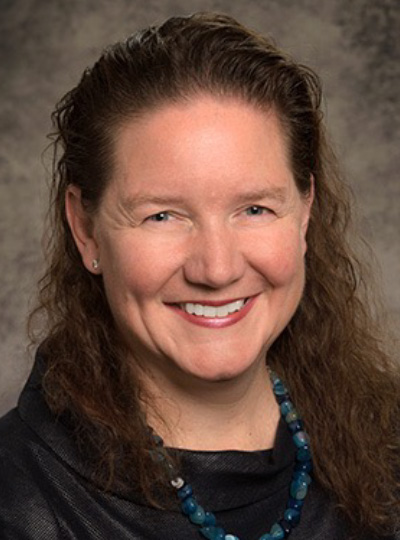
Mary Jo Lechowicz, MD
Professor and Vice Chair for Education, Department of Hematology and Medical Oncology, Director, Medical Student Societies, Emory University School of Medicine, Margaret H. Rollins Chair in Cancer, Winship Cancer Institute of Emory University, Atlanta, GA
Dr. Mary Jo Lechowicz, MD is a Professor of Medicine in the Hematology division, Vice Chair for Education in the Department of Hematology and Medical Oncology at Emory University in Atlanta, Georgia. She is also the Margaret Rollins Inaugural Chair of Cancer at the Winship Cancer Institute of Emory University.
Dr. Lechowicz specializes in Castleman’s Disease, Peripheral T-cell (PTCL) and Cutaneous T cell lymphomas (CTCL). She helped expand the CTCL program at Emory University over the past 21 years. She is board certified in medical oncology. She is the regional referral physician for dermatologists and oncologists and the program has grown nationally. Dr. Lechowicz serves as Director of Medical Student Societies and Social Medicine for Emory University School of Medicine. She has dedicated her career to education and mentorship supervising medical students, residents, fellow, and junior faculty.
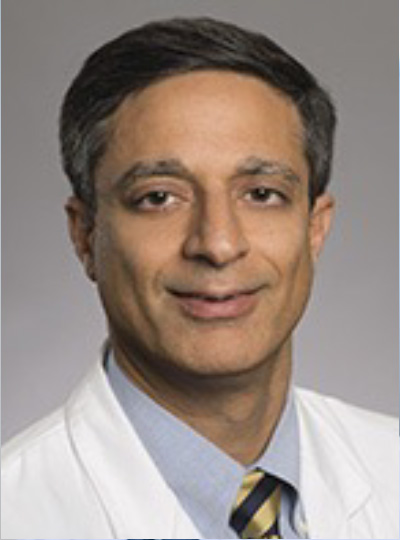
Sagar Lonial, MD, FACP
Chair and Professor, Department of Hematology and Medical Oncology, Anne and Bernard Gray Family Chair in Cancer, Emory University School of Medicine, Chief Medical Officer, Winship Cancer Institute of Emory University, Atlanta, GA
Dr. Sagar Lonial , MD, FACP is internationally recognized as a leading authority in multiple myeloma treatment and research. As a medical oncologist at the Winship Cancer Institute, Dr. Lonial treats patients with multiple myeloma and is a lead member of the bone marrow transplantation team and clinical trials team. He is board certified in hematology and medical oncology. Dr. Lonial is involved in numerous professional organizations including American Society of Clinical Oncology, American Society of Hematology, and American Society for Blood and Marrow Transplantation. He serves Vice Chair of the Finance Committee of the International Myeloma Society, and serves as Vice Chair of the Myeloma Committee in the Eastern Cooperative Oncology Group. He also serves as President and Chair of the Society of Hematologic Oncology. Additionally, he is on the Scientific Advisory Board for the International Myeloma Foundation. Dr. Lonial has worked in the field of immunotherapy and cancer since his arrival at Emory, and in the previous 3 years has spent time developing the B-cell malignancy program with respect to novel targeted agents in laboratory models as well as early clinical trials. His previous laboratory work has focused on evaluating the impact of purified dendritic cell subsets on the nature of immune responses against antigen, and he has completed several trials evaluating the impact of cytokines on dendritic cell content and post transplant immune recovery. Most recently, Dr. Lonial has focused on combinations of novel agents as therapy for myeloma and lymphoma, particularly evaluating combinations that may result in synergistic inhibition of the PI3-K/Akt pathway. His lab has recently received funding from the MMRF, the Lymphoma Research Foundation, and The Leukemia & Lymphoma Society.
Dr. Lonial earned his medical degree from the University of Louisville School of Medicine. He completed his internship and residency at Baylor College of Medicine in Houston, Texas, followed by a fellowship in hematology and oncology at Emory University School of Medicine in Atlanta, Georgia.
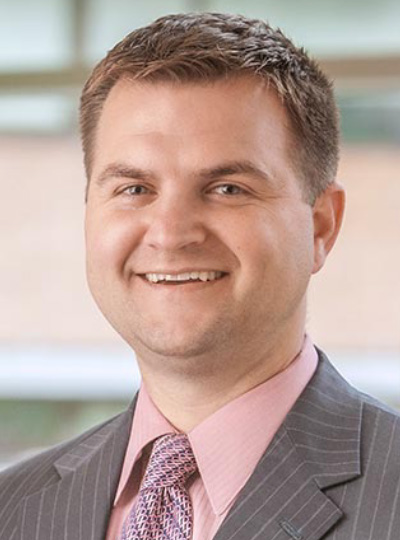
Matthew Lunning, DO, FACP
Assistant Vice Chancellor of Clinical Research, Associate Vice Chair of Research, Department of Internal Medicine, Associate Professor, Division of Oncology & Hematology, University of Nebraska Medical Center, Omaha, NE
Dr. Matthew Lunning, DO, FACP is an Associate Professor in the Division of Hematology/Oncology at the University of Nebraska Medical Center. He serves the Department of Internal Medicine as the Associate Vice Chair of Research. He recently was appointed as an Assistant Vice Chancellor of Clinical Research and elected to serve on the Nebraska Medicine Medical Executive Committee as an at-large member.
He received his medical degree from Des Moines University in 2006. Dr. Lunning completed his internal medicine residency at UNMC where he served as Chief Medical Resident. He completed his Hematology/Oncology fellowship and served as the Hematology Chief Fellow at Memorial Sloan-Kettering Cancer Center. Dr. Lunning returned to UNMC in 2013 and has been active in clinical research, research mentoring, education, and patient care and was the recipient of the Distinguish Scientist Award in 2019.Dr. Lunning has served on several National Comprehensive Cancer Network’s guidelines committees including the Immunotherapy Toxicity & T-cell lymphoma panels. He has served as an invited member of ASCO’s Cancer Education Committee on the Non-Hodgkin Lymphoma. He is the co-organizer of the Pan Pacific Lymphoma Conference.
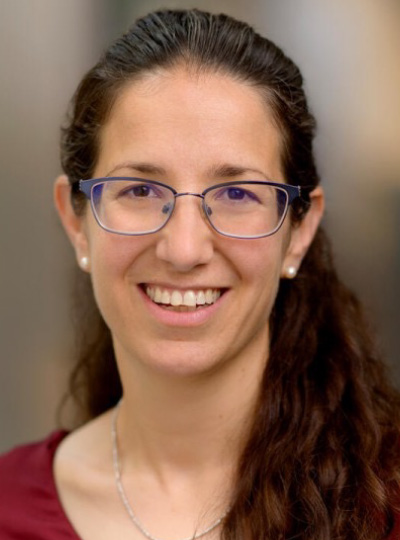
Efrat Luttwak, MD, MPH
Assistant Attending Physician, Lymphoma Department, Memorial Sloan Kettering Cancer Center, New York, NY
Dr. Efrat Luttwak, MD, MPH, is a junior faculty attending in the lymphoma service at Memorial Sloan Kettering Cancer Center (MSK), with specialized training in lymphoma and expertise in biostatistics and epidemiology. After graduating cum laude from medical school at the Jerusalem Hebrew University at the Hadassah Medical Center in 2012, she completed an MPH in epidemiology with honors, equipping her with a robust foundation in research design and statistical analysis. Her clinical training began at Tel Aviv Sourasky Medical Center, where she completed both an internal medicine residency and a hemato-oncology fellowship. During her tenure, she served as an attending in the lymphoma department, focusing on clinical care and research in lymphoproliferative diseases. From 2022 to 2024, she completed an advanced oncology fellowship in the lymphoma service at MSK under the mentorship of Dr. Gilles Salles. Her research focused on clinical and translational aspects of lymphoma, particularly follicular lymphoma (FL). She led the development and curation of a comprehensive FL database, designed to study disease transformation, enhance patient stratification, and gain insights into the biology underlying transformation. Building upon this robust foundation, her current research focuses on advancing treatment strategies for transformed follicular lymphoma (tFL). Through integrative correlative studies, she aims to explore the mechanisms of resistance to novel therapeutic agents in FL, with the goal of improving outcomes for patients with this challenging disease. This project directly aligns with her long-term goal of becoming an independent clinical investigator specializing in lymphoproliferative diseases and translational research. By focusing on patient-oriented studies, she aims to bridge the gap between scientific discovery and clinical application, improving outcomes for lymphoma patients. She is deeply committed to advancing our understanding of lymphoma biology and translating these insights into impactful clinical strategies. Her specialized training, research experience, and dedication to addressing clinically meaningful questions make her well-positioned to contribute significantly to the field.
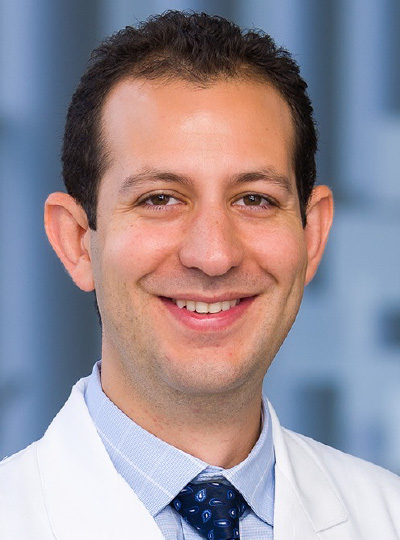
Yazan Madanat, MD
Assistant Attending Physician, Lymphoma Department, Memorial Sloan Kettering Cancer Center, New York, NY
Yazan F. Madanat, M.D., is an Associate Professor in the Division of Hematology and Medical Oncology at UT Southwestern Medical Center in Dallas, where he serves as Director of the Leukemia and Hematopoietic Cell Transplant Program. In this capacity, Dr. Madanat oversees a multidisciplinary clinic for blood cancers and cellular therapies, guiding both patient care and translational research efforts aimed at improving outcomes in hematologic malignancies.
Dr. Madanat completed his M.D. at the University of Jordan before moving to the Cleveland Clinic for his residency and subspecialty fellowship, where he developed a focus on myeloid malignancies. He joined the UT Southwestern faculty in 2019 and was promoted to Associate Professor effective September 2024. Dr. Madanat’s research program centers on elucidating the molecular and genomic drivers of hematologic cancers and translating those insights into novel therapeutic strategies. He has published extensively on outcomes in hairy cell leukemia, optimization of hypomethylating drugs in MDS, and the genomic landscape of mixed-phenotype acute leukemias, reflecting his expertise in both the bench and bedside aspects of blood-cancer treatment. Dr. Madanat is a member of the American Society of Hematology, American Society of Clinical Oncology, and American College of Physicians, and regularly lectures at national meetings on advances in myeloid malignancies and transplant techniques.
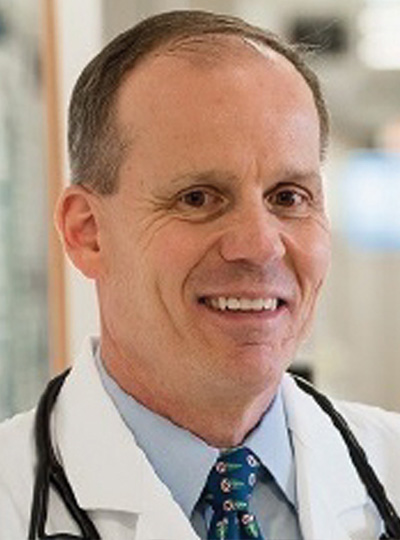
Joseph McGuirk, DO, FACP
Schutte-Speas Professor of Hematology-Oncology, Professor of Medicine, Medical Director, Blood and Marrow Transplantation Division, Director, Hematologic Malignancies and Cellular Therapeutics University of Kansas Medical Center, Westwood, KS
Dr. Joseph McGuirk, DO, FACP, completed his residency at Yale, fellowship at Memorial Sloan Kettering Cancer Center and subsequently served as Associate Director of the Yale Stem Cell Transplant Program. He currently serves as Director for the Division of Hematologic Malignancies and Cellular Therapeutics at the University of Kansas Cancer Center and holds the endowed Schutte-Speas Professorship in Hematology-Oncology. He serves on many national committees and boards. He has worked in the field of hematologic malignancies for over 30 years and has published extensively in the areas of stem cell transplantation and cellular therapeutics. Additionally, he has been the principal investigator in more than 40 clinical trials, including two investigator-initiated trials for which he holds the FDA IND.
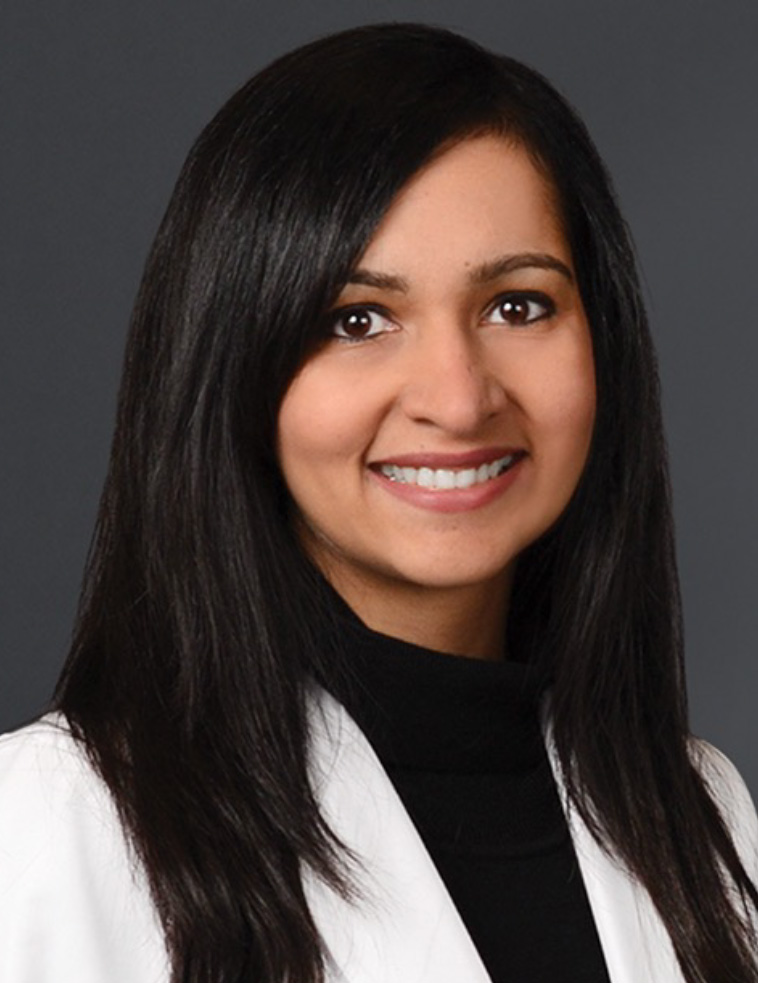
Prerna Mewawalla, MD
Associate Professor of Medicine, Drexel University, Medical Director of Apheresis, Hematologist-Oncologist, Allegheny Health Network (AHN), Philadelphia, PA
Dr. Prerna Mewawalla, MD, completed her medical education at Seth GS Medical College and pursued her residency at the University of Connecticut Health Center. She went on to complete her fellowship through the AGH-WPH Medical Education Consortium. Dr. Prerna Mewawalla is a myeloma and transplant physician specializing in plasma cell disorders and cellular therapy. She serves as the Medical Director of Apheresis at Allegheny Health Network (AHN) and is a member of the executive committee of the cancer institute. Additionally, she holds an academic appointment as Associate Professor of Medicine at Drexel University. Dr. Mewawalla is also a recognized leader in physician advocacy. She is the Chair of the Women Physicians Employee Resource Group at AHN, Chair of the Women in Healthcare Committee for the Allegheny County Medical Society (ACMS), and an elected member of the ACMS Board of Directors. She also represents District 13 in the Women Physicians Section of the Pennsylvania Medical Society (PAMED). Her scholarly work focuses on myeloma, amyloidosis, and emerging cellular therapies. She has authored multiple publications and presented at national conferences. Dr. Mewawalla is deeply committed to physician wellness, mentorship, and promoting equity in healthcare.
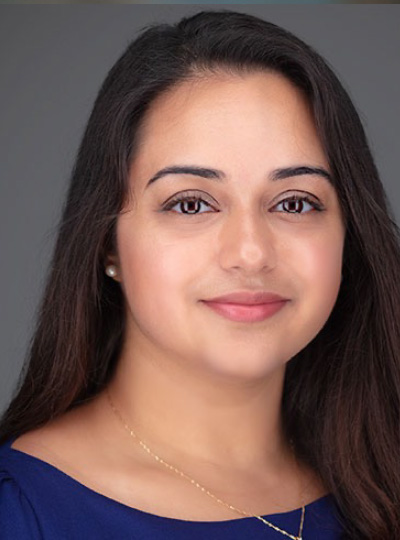
Shonali Midha, MD
Instructor in Medicine, Harvard Medical School, Physician, Dana-Farber Cancer Institute, Boston, MA
Dr. Shonali Midha, MD, is a medical oncologist focused on the treatment of multiple myeloma and plasma cell disorders. She completed her internal medicine residency training at the University of South Florida in Tampa, FL., where she completed a Chief Residency year, and her hematology/oncology fellowship at Moffitt Cancer Center, Tampa, FL where she also served as Chief Fellow. She is board certified in internal medicine, hematology and medical oncology. She joined the Jerome Lipper Multiple Myeloma Center at Dana-Farber Cancer Institute in 2021. She is an Instructor in Medicine at Harvard Medical School.
Her clinical and research interests include further understanding high risk disease and studying the role of novel effective therapies including immunotherapy and cellular therapies in multiple myeloma.

Lekha Mikkilineni, MD, PhD
Assistant Professor of Medicine, Blood and Marrow Transplantation & Cellular Therapy, Stanford Medicine, New York, NY
Dr. Lekha Mikkilineni is a board-certified medical oncologist. She is also an Assistant Professor in the Department of Medicine, Division of Blood & Marrow Transplant and Cellular Therapy. Dr. Mikkilineni has extensive experience treating blood and bone marrow cancers. She currently provides care through the Bone Marrow Transplant & Cellular Therapy Program at Stanford Health Care. Her clinical focus is multiple myeloma, plasma-cell leukemia, Extramedullary myeloma, high-risk myeloma, CAR T cell therapy, bispecific therapy, amyloidosis, POEMS syndrome, and Waldenstrom’s macroglobunemia. She is particularly focused on understanding how to improve therapies for multiple myeloma patients who have extramedullary disease or high-risk features. Prior to coming to Stanford, she ran phase 1 CAR T-cell trials for multiple myeloma targeting BCMA and SLAMF7 at the National Cancer Institute.
Dr. Mikkilineni received the Conquer Cancer Foundation Young Investigator Award from the American Society of Clinical Oncology for her research focusing on SLAMF7 as a potential target for multiple myeloma. She has received honors and awards for her work at the NCI. She has completed fellowships in hematology/oncology and immunotherapy at the National Heart, Lung, and Blood Institute/National Cancer Institute. She finished her residency in internal medicine at Thomas Jefferson University Hospital. She holds a Master of Science in medical sciences from Boston University and a medical degree from Tulane University.
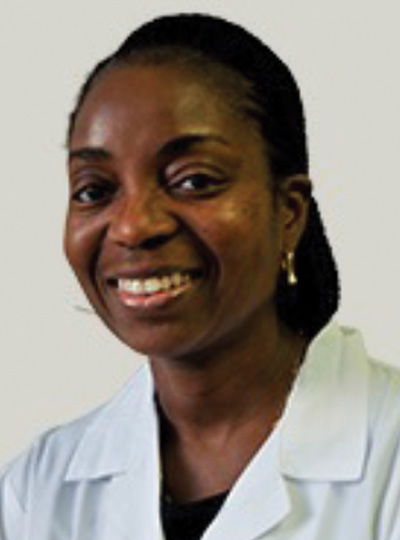
Olatoyosi Odenike, MD
Professor of Medicine, Director, Leukemia Program, The University of Chicago Medicine, Chicago, IL
Dr. Olatoyosi Odenike, MD, is an expert in the care of adults with leukemia, chronic myeloproliferative diseases, and myelodysplastic syndromes. She specializes in all types of treatment for these diseases, including blood and bone marrow stem cell transplant. An active researcher, Dr. Odenike is involved in the development of novel therapeutic agents for the treatment of acute and chronic leukemias and chronic myeloproliferative diseases. The ultimate goal of her research is to improve treatment options for patients with these diseases. Dr. Odenike is the principal investigator on a number of clinical trials investigating molecularly targeted agents in this patient population. These clinical trials also integrate laboratory studies to evaluate the effect that these agents have on cancer cells.
Dr. Odenike received her medical education at the University of Ibadan College of Medicine. She completed her residency in internal medicine at the University of Illinois at Chicago, where she also pursued a fellowship in hematology and oncology.
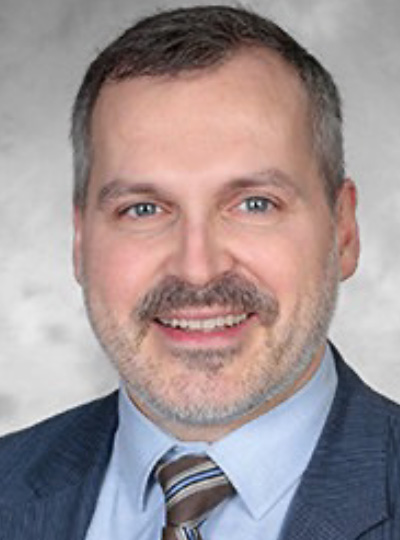
Adam Olszewski, MD
Associate Professor of Medicine, The Warren Alpert Medical School, Brown University, Hematologist/Oncologist, Cancer Institute, Rhode Island Hospital, Providence, RI
Dr. Adam Olszewski, MD, is a board-certified hematologist/oncologist and researcher with the Brown University Health Cancer Institute at Rhode Island Hospital and The Miriam Hospital. He specializes in the treatment of lymphoid cancers, including Hodgkin and non-Hodgkin lymphoma, as well as chronic lymphocytic leukemia, with a focus on clinical trials of new therapies. An Associate Professor of medicine at The Warren Alpert Medical School of Brown University, Dr. Olszewski is also a Research Scholar of the American Cancer Society, advancing research aimed at improving outcomes for patients with lymphoid malignancies. Dr. Olszewski received his medical education at the Medical University of Warsaw. He completed his residency and fellowship in hematology and oncology at Roosevelt Hospital of New York.
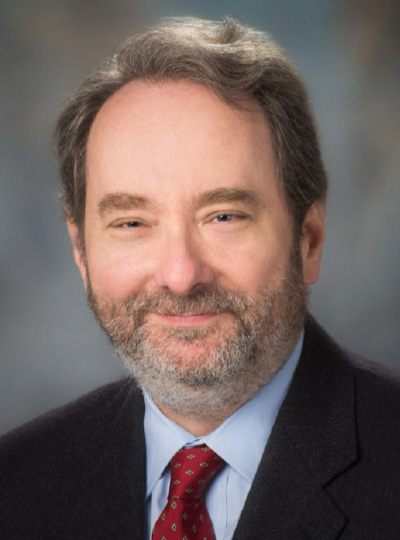
Robert Orlowski, MD, PhD
Professor, Department of Lymphoma/Myeloma, Professor, Department of Experimental Therapeutics, Director, Section of Myeloma, Division of Cancer Medicine, The University of Texas MD Anderson Cancer Center, Houston, TX
Dr. Robert Orlowski, MD, PhD, is Director of Myeloma, and Professor of Medicine in the Departments of Lymphoma/Myeloma and Experimental Therapeutics, Division of Cancer Medicine, where he is board-certified in medical oncology. Dr. Orlowski earned his doctoral degree in molecular biophysics and biochemistry from Yale University and his medical degree from the Yale University School of Medicine. He completed his internship and residency in Internal Medicine at Barnes Hospital at the Washington University in St. Louis School of Medicine. After his fellowships in Hematology and Medical Oncology at John Hopkins Sidney Kimmel Comprehensive Cancer Center, he joined the faculty at University of North Carolina in Chapel Hill. Following that, Dr. Orlowski accepted a position at The University of Texas MD Anderson Cancer Center in 2007 to lead the Myeloma Section in the Department of Lymphoma/Myeloma.
His research interests include pathobiology of novel therapeutic targets and mechanisms of drug resistance in myeloma which are documented in hundreds of scientific articles, book chapters, and presentations at conferences. Dr. Orlowski is an investigator on numerous clinical trials, and appointed as the Myeloma Committee Chair for SWOG.

Jae Park, MD
Chief, Cellular Therapy Service, Associate Attending Physician, Memorial Sloan Kettering Cancer Center, New York, NY
Dr. Jae Park, MD is a hematologist-oncologist specializing in the care of patients with leukemia, dedicated towards providing best possible care to each patient. As an active translational investigator, he has spent time both in the laboratory and in clinics to bring new and innovative treatments to patients with leukemia. He is particularly interested in developing more-effective and personalized therapies for patients with acute and chronic lymphoid leukemia and lead investigator of a clinical trial using genetically modified T cells to treat patients with chronic lymphocytic leukemia (CLL). He is also a co-principal investigator on several other clinical trials in patients with acute lymphoblastic leukemia (ALL) and CLL.
Dr. Park’s ultimate goal as a physician is to develop new and potentially curative therapies for patients with leukemia and to provide compassionate and individualized care to address each patient’s unique needs.
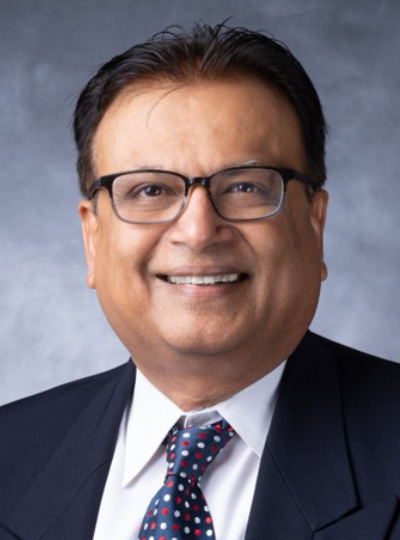
Uday Popat, MD
Professor, Stem Cell Transplantation, Deputy Chair, ad interim, Stem Cell Transplantation, Quality Officer, Stem Cell Transplantation, Quality Officer, Cancer Medicine, The University of Texas MD Anderson Cancer Center, Houston, TX
Dr. Uday Popat, MD did his early training including medical school and residency in Mumbai, India. He further trained in hematology, medical oncology, and stem cell transplantation at multiple teaching institutions in the UK and the USA, including Baylor College of Medicine and The University of Texas MD Anderson Cancer Center. He is currently a Professor in the Department of Stem Cell Transplantation at The University of Texas MD Anderson Cancer Center in Houston, Texas. He is also the interim Deputy Chair of the Department of Stem Cell Transplantation.
Dr. Popat’s research interests include development of novel conditioning regimens for transplantation, improving transplant outcomes in older patients, and transplantation in myeloid malignancies and autoimmune diseases. He has published more 300 papers in peer review journals.
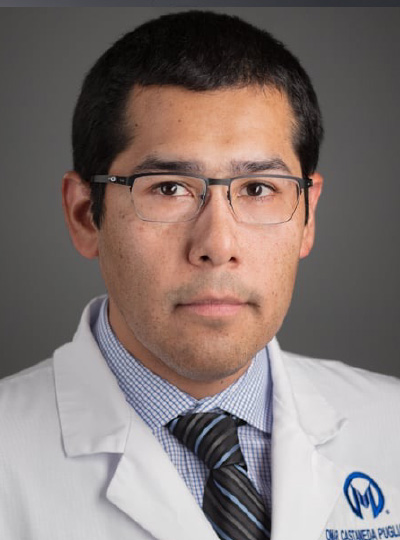
Omar Castaneda Puglianini, MD
Associate Professor, Department of Oncologic Sciences, University of South Florida, Associate Member, Blood & Marrow Transplant & Cellular Immunotherapy (BMT CI), H Lee Moffitt Cancer Center, Tampa, FL
Dr. Omar Castaneda Puglianini, MD is an Associate Member in the Blood & Marrow Transplant & Cellular Immunotherapy (BMT CI) and is an Associate Professor in the Department of Oncologic Sciences at the University of South Florida. He earned his MD from Universidad Peruana Cayetano Heredia in Lima, Peru, and completed an Internal Medicine residency at Albert Einstein College of Medicine in New York. He completed a Hematology/Oncology fellowship at Virginia Commonwealth University/Massey Comprehensive Cancer Center followed by a Blood and Marrow Transplant and Cellular Immunotherapy fellowship at Moffitt Cancer Center. Dr. Castaneda Puglianini has previously served as the Director of the CAR T-cell Therapy Program in the Division of Hematology/Oncology and Palliative Care at VCU Massey Comprehensive Cancer Center.
Dr. Castaneda Puglianini's clinical interests are in the treatment of hematological malignancies with a focus on plasma cell neoplasms using modalities such as autologous and allogeneic hematopoietic stem cell transplantation as well as adoptive cellular and non-cellular immunotherapy. His research areas of interest include prognostic factors associated with progression, the role of minimal residual disease (MRD) and clinical trials investigating novel cellular immunotherapeutic approaches for multiple myeloma.
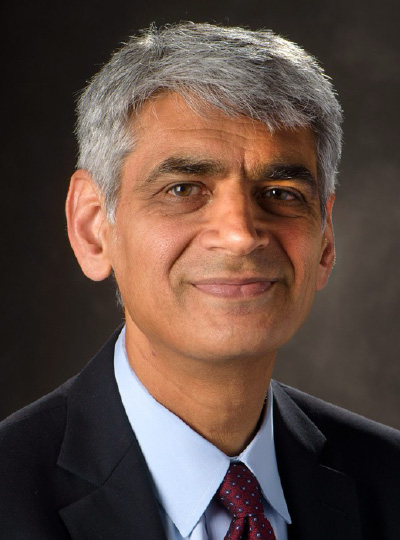
Muzaffar Qazilbash, MD
Professor Director, Myeloma Transplantation and Cellular Therapy, Co-Director, Stem Cell Transplantation Fellowship Program, Department of Stem Cell Transplantation, Division of Cancer Medicine, The University of Texas MD Anderson Cancer Center, Houston, TX
Dr. Muzaffar Qazilbash, MD, is a Professor in the Department of Stem Cell Transplantation and Cellular Therapy at UT MD Anderson Cancer Center which he joined in October 2002. He completed his hematology-oncology fellowship at the National Institutes of Health (NIH) in Bethesda, Maryland. He is committed to clinical and translational research and leads the Myeloma Program in the Department of Stem Cell Transplantation.
Dr. Qazilbash’s clinical work and research have been focused on improving the outcomes of stem cell transplantation and cellular therapy for patients with multiple myeloma and related disorders. As Director of Myeloma Transplantation and Cellular Therapy in his Department, he leads one of the largest myeloma transplant programs in the country. He has led several clinical trials for myeloma and related disorders, funded by the NIH and various philanthropic organizations. Dr. Qazilbash has served as the Principal Investigator for the idiotype vaccine and cellular therapy studies (2004-0660, 2010-0710) for myeloma, funded by the National Cancer Institute (SPORE) and the Leukemia Lymphoma Society (SCOR). He also led the PR1 vaccine trial (DM97-325), an NCI-sponsored study (# T98-0017) that has received national recognition due to its novel approach and encouraging results.
Dr. Qazilbash has authored or co-authored more than 180 research papers in peer-reviewed medical journals and serves in leadership positions on various institutional and extramural committees. He has been invited to present his work at many national and international symposia.
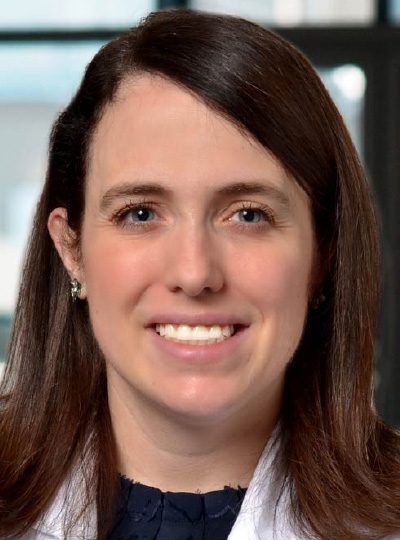
Kerry A. Rogers, MD
Associate Professor, Division of Hematology, Ohio State University Comprehensive Cancer Center, Columbus, OH
Dr. Kerry A. Rogers, MD is an Associate professor in the Division of Hematology at The Ohio State University as well as a specialist in chronic lymphocytic leukemia (CLL) and hairy cell leukemia (HCL). Following her initial medical education at Chicago Medical School, Dr. Rogers completed her residency in internal medicine at the University of Michigan. She then undertook a fellowship at The Ohio State University in hematology and oncology, and after completing her training, she joined the staff at the Ohio State University Comprehensive Cancer Center (OSUCCC).
She is a physician scientist working on chemotherapy-free combinations to improve the use of BTK inhibitors. In addition to caring for patients with CLL and HCL in clinic, Dr. Rogers leads clinical trials to study novel regimens for CLL and HCL. Her other research interests include complications of targeted therapy for CLL, management of Richter syndrome and autoimmune hemolytic anemia. Dr. Rogers has authored several articles for publication in medical journals such as Leukemia and Cancer Cell and has prepared numerous abstracts and posters for presentations.
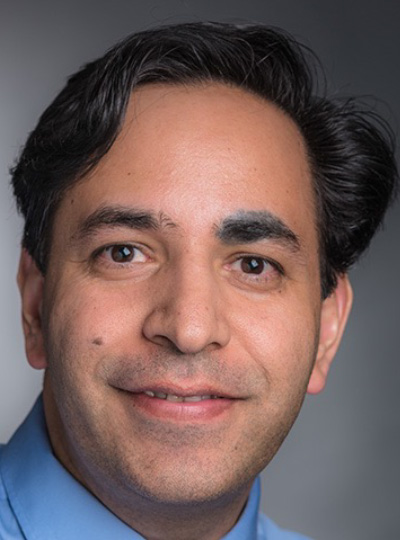
Rizwan Romee, MD
Associate Professor of Medicine, Harvard Medical School, Director, Haploidentical Donor Transplantation Program, Physician, Dana-Farber Cancer Institute, Boston, MA
Dr. Rizwan Romee, MD, is the Director of the Haploidentical Donor Transplantation Program and a physician at Dana-Farber Cancer Institute. He is also an Associate Professor of Medicine at Harvard Medical School. Dr. Romee received his MD from Govt. Medical College Srinagar, India. He completed his postgraduate training and hematology and oncology fellowship at University of Minnesota where he also did his post-doctoral training in Dr. Jeffrey S. Miller’s laboratory. Afterward, he did an advanced bone marrow transplant fellowship at Washington University in Saint Louis where he stayed on as faculty before moving to Dana-Farber Cancer Institute.
Dr. Romee's research focuses on utilizing novel synthetic biology approaches to enhance the anti-tumor function of conventional and memory-like Natural Killer (NK) cells. His lab employs advanced CRISPR and non-CRISPR gene editing techniques to develop secondary arming strategies aimed at overcoming the immunosuppressive tumor microenvironment, particularly in solid tumors. Additionally, his team is working on developing TCR-mimetic CARs targeting both liquid and solid malignancies with limited tumor-specific antigen expression.Dr. Romee has initiated early-phase clinical trials evaluating engineered memory-like NK cells in combination with novel immune-modulatory agents in patients with advanced malignancies, including acute myeloid leukemia (AML), myelodysplastic syndromes (MDS), platinum-refractory head and neck cancer, and multiple myeloma. His research utilizes flow cytometry, mass cytometry, and single-cell RNA sequencing to study the in vivo biology of adoptively transferred memory-like NK cells and their interactions within the tumor microenvironment. These insights aim to guide the development of future NK cell-based clinical protocols.
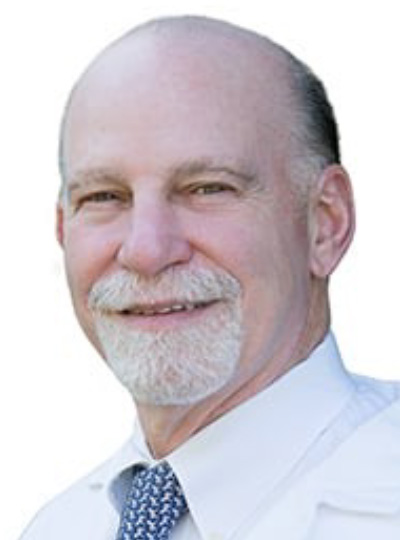
Steven Rosen, MD
Executive Vice President and Director Emeritus, Comprehensive Cancer Center and Beckman Research Institute of City of Hope, Professor, Division of Lymphoma, Department of Hematology & Hematopoietic Cell Transplantation, City of Hope, Duarte, CA
Dr. Steven T. Rosen, M.D., FACP, FASCO, FAIME, serves as Executive Vice President and Director Emeritus of the Comprehensive Cancer Center and Beckman Research Institute at City of Hope, where he also holds the Ted Schwartz Family Distinguished Chair in Hematologic Malignancies and is Professor in the Division of Lymphoma within the Department of Hematology & Hematopoietic Cell Transplantation City of Hope. In this leadership capacity, he provides strategic oversight of interdisciplinary research programs, fosters collaboration between basic scientists and clinicians, and guides the institute’s national standing in cancer discovery and care.
Dr. Rosen earned his B.S. and M.D. with distinction from Northwestern University in 1976 and completed his residency in Internal Medicine at Northwestern, followed by a fellowship in Medical Oncology at the National Cancer Institute. Before joining City of Hope in 2014, he was the Genevieve Teuton Professor of Medicine and for 24 years directed the Robert H. Lurie Comprehensive Cancer Center at Northwestern University, where he led its designation as an NCI-comprehensive cancer center in 1997.
A board-certified medical oncologist and hematologist, Dr. Rosen’s clinical research centers on hematologic malignancies—particularly acute and chronic leukemias, cutaneous and systemic lymphomas, and multiple myeloma. His pioneering work on glucocorticoid-induced cancer cell apoptosis, RNA-directed nucleoside analog therapies for leukemia, and targeted metabolic interventions has shaped novel treatment paradigms and earned him international recognition in blood-cancer research.
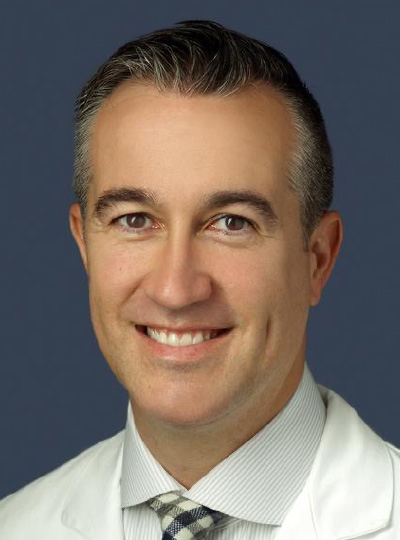
Joseph Roswarski, MD
Hematologist-Oncologist, MedStar Georgetown University Hospital, Georgetown Lombardi Comprehensive Cancer Center, Washington, DC
Dr. Joseph Roswarski, MD is fellowship-trained, board-certified medical hematologist oncologist affiliated with MedStar Georgetown University Hospital and the Georgetown Lombardi Comprehensive Cancer Center. His medical career includes clinical care and research in hematologic malignancies, particularly lymphoma and multiple myeloma, at Walter Reed National Military Medical Center and through volunteer service at the National Institutes of Health (NIH). He obtained his medical degree from Indiana University School of Medicine. He then completed his residency in 2014 and fellowship in 2017 at the Uniformed Services University of the Health Sciences.
A decorated military veteran, Dr. Roswarski has received numerous awards during his time of military service as a medical officer. Chief among these is the Bronze Star Medal – awarded for exceptionally meritorious service as the 201st Corps senior medical advisor. Additionally, he received the Meritorious Service Medal for his clinical care and leadership while at Tripler Army Medical Center in Hawaii.
Dr. Roswarski specializes in the treatment of lymphoma, leukemia, CLL, and myelodysplastic syndrome, at the Georgetown Lombardi Comprehensive Cancer Center. His philosophy of care is to first and foremost develop a strong rapport with his patients, focusing on empathy and understanding. He is passionate about making sure that patients and their families are able to understand their diseases and treatment options, in terms that are easily digestible, so that decisions can be made collaboratively.
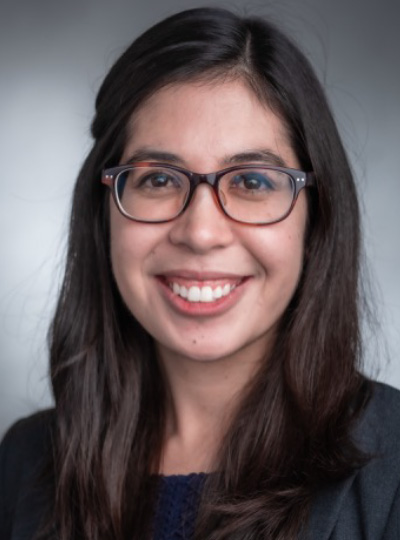
Christine Ryan, MD
Instructor in Medicine, Harvard Medical School, Attending Physician, Division of Lymphoma, Clinical Leader, DFCI Mantle Cell Lymphoma Center, Dana Farber Cancer Institute, Boston, MA
Dr. Christine Ryan, MD is an Instructor in Medicine at Harvard Medical School and an Attending Physician in the Lymphoma Division at Dana-Farber Cancer Institute in Boston, Massachusetts. She earned her medical degree from Stanford University School of Medicine, completed her Internal Medicine residency at Brigham and Women’s Hospital, Harvard Medical School, and graduated from the Hematology/Oncology Fellowship program at Dana-Farber Cancer Institute/Mass General Brigham. She has received a number of honors including selection for the Lymphoma Research Foundation’s Lymphoma Scientific Research Mentoring Program, where she was named the inaugural Kanti R. Rai Distinguished Scholar. She is additionally a recipient of a Young Investigator Award from the CLL Society and a Career Development Award from the Lymphoma Research Foundation. Her research focuses on clinical trials and translational studies that investigate novel therapeutics in B-cell malignancies with a focus on Chronic Lymphocytic Leukemia, Richter’s Transformation, and Mantle Cell Lymphoma. She currently serves as the clinical leader of the Mantle Cell Lymphoma Center at Dana-Farber Cancer Institute.
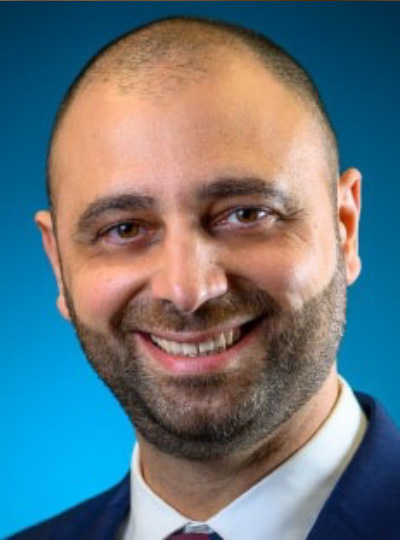
Nakhle Saba, MD
Professor of Medicine LSU School of Medicine, Director of Lymphoma and CAR-T Therapy Program Our Lady of the Lake Cancer Institute, Baton Rouge, LA
Dr. Nakhle Saba, MD earned his medical degree from the Lebanese University in Beirut 2005. He completed his residency in Internal Medicine at East Tennessee State University in Johnson City, TN and Tulane University in New Orleans, LA, and his fellowship in Hematology and Medical Oncology at Tulane University. After fellowship completion in 2011, Dr. Saba joined the National Heart, Lung, and Blood Institute (NHLBI), National Institutes of Health (NIH) for an additional fellowship in lymphoid malignancies. His research at the NIH was focused on tumor biology and developing new therapeutic approaches for leukemia and lymphoma. He returned to Tulane in 2014 as Assistant Professor of Medicine, promoted to Associate Professor in 2018, then to Professor in 2024 following a successful career in research, teaching, and treating blood cancers. In October 2024, Dr. Saba was recruited to the Our Lady of the Lake Cancer Institute as Professor of Medicine at LSU Health Sciences Center, and Director of Lymphoma, CLL, and chimeric antigen receptor (CAR)-T. He is diligently working to expand the lymphoma and CLL research portfolio and bring cutting edge therapies to the region such as CAR-T, the next generation CARs. Dr. Saba’s research focuses on lymphoid malignancies and cell therapy, to identify therapeutic targets and novel drugs for these diseases.
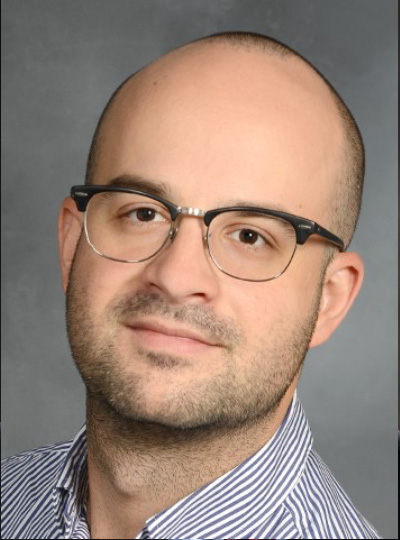
Mateo Mejia Saldarriaga, MD
Assistant Professor of Medicine, Multiple Myeloma Group, Division of Hematology and Medical Oncology, Weill Cornell Medicine, New York, NY
Dr. Mateo Mejia Saldarriaga, MD, is an Assistant Professor of Medicine in the Division of Hematology and Medical Oncology at Weill Cornell Medicine and an Assistant Attending Physician at NewYork-Presbyterian Hospital. Dr. Mejia received his medical degree (M.D.) from the Universidad CES in his hometown of Medellin, Colombia, after which he completed an internal medicine residency at the Jacobi Medical Center/Albert Einstein College of Medicine in the Bronx, NY, where he also served as a Chief Resident. He completed his Hematology and Oncology fellowship at Weill Cornell Medicine/NewYork-Presbyterian Hospital and joined the Hematology and Medical Oncology Division after completing his fellowship training in 2023. During fellowship, Dr. Mejia developed his clinical experience under the mentorship of Dr. Ruben Niesvizky, while pursuing his laboratory research at Dr. Mark Bustoros’ Laboratory, being able to complete both clinical and translational research in the plasma cell malignancy field.
Dr. Mejia’s research has focused on the genomic drivers of aggressive forms of myeloma, for which he received the 2022 Conquer Cancer – American Society of Clinical Oncology (ASCO) Young Investigator Award, a pre
stigious honor only given to 100 of people each year. Additionally, Dr. Mejia was the recipient ofthe 2022 Charles, Lillian and Betty Neuwirth Foundation Fellowship in Oncology award for his project “Genomic Landscape of Multiple Myeloma with Extramedullary Disease”. Dr. Mejia’s research also investigates the connectionof race, ethnicity and myeloma, how myeloma escapes the surveillance of the immune system, as well as how genetic information can be used to develop novel approaches to treat myeloma.
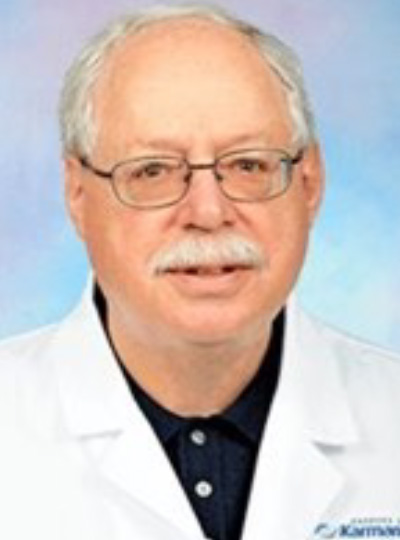
Charles Schiffer, MD
Professor, Emeritus Department of Oncology, Wayne State University School of Medicine, Detroit, MI
Dr. Charles Schiffer, MD is Professor Emeritus in the Department of Oncology at Wayne State University School of Medicine in Detroit, Michigan. Dr. Schiffer retired as a hematologist and medical oncologist at the Barbara Ann Karmanos Cancer Institute in 2020. He was the leader of the Hematology Oncology Multidisciplinary Team (MDT) and is still very active with the team, often participating in panel discussions and more. He directed the Hematology and Medical Oncology Fellowship program for approximately 15 years. Dr. Schiffer earned his M.D. at New York University School of Medicine. He completed his internship, residency, and chief residency in Internal Medicine at Bellevue Hospital under the auspices of New York University School of Medicine and had subsequent training and positions at the Baltimore Cancer Research Institute, National Cancer Institute and the University of Maryland School of Medicine, where he served as Chief of the Division of Hematology. He has also served as Chief of the Division of Hematology/Oncology and Director of Clinical Research at the Karmanos Cancer Institute.
He has authored and co-authored more than 300 articles and 80 book chapters on topics concerning the treatment of leukemia in adults, platelet transfusion, and granulocyte transfusion therapy, among others. He has served on the Editorial Boards for Blood, the Journal of Clinical Oncology, International Journal of Hematology, Transfusion Medicine Reviews and Transfusion, and reviews articles for multiple journals. Committee memberships have included Chairman of the Leukemia Committee of the Cancer and Leukemia Group B, Chairman of the Food and Drug Administration Oncologic Drug Advisory Committee, and grant reviews for the NCI and Leukemia/Lymphoma Society of America. Dr. Schiffer has been named among American Health Magazine’s and Castle Connelly’s “Best Doctors in America,” “Best Cancer Specialists in the US.” In 2006, he received the Dr. John J. Kenney Award from the Leukemia/Lymphoma Society of America and the Celgene Award for Career Achievement in Hematology. He has received multiple teaching awards from Wayne State University and was inducted into the Academy of Scholars, the highest recognition accorded to academic faculty at the University. Dr. Schiffer received the 2024 ASH Mentor Award at the 66th ASH Annual Meeting and Exposition.
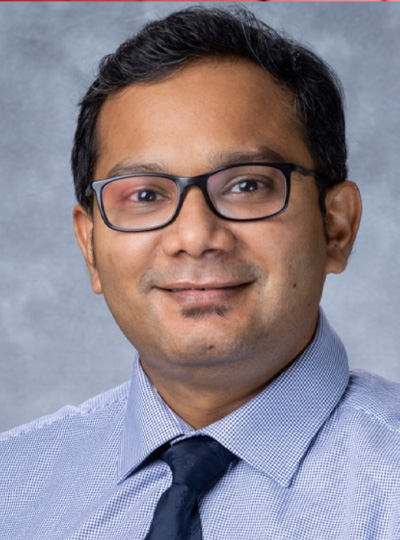
Jayastu Senapati, MBBS, MD, DM
Assistant Professor, Department of Leukemia, Division of Cancer Medicine, The University of Texas MD Anderson Cancer Center, Houston, TX
Dr. Jayastu Senapati, MBBS, MD, DM is an Assistant Professor in the Dept of Leukemia at the University of Texas MD Anderson Cancer Center, Houston Texas. He graduated from Christian Medical College, Vellore, India, where he also completed his residency in Internal Medicine, followed by a Clinical Hematology fellowship at AIIMS, New Delhi. He subsequently completed a leukemia fellowship at MD Anderson Cancer Center and joined the department as a faculty member. Dr. Senapati treats patients with acute and chronic leukemias and focuses on management of critical acute leukemia patients. He believes in patient centric leukemia care, driven by the latest research and evidence-based practices. His research primarily focuses on acute myeloid leukemia (AML) and acute lymphoblastic leukemia (ALL), and he has been involved in numerous clinical trials and research initiatives. He has important publications on leukemia therapy and management in high-impact journals such as Lancet Haematology, Journal of Clinical Oncology, Blood, Leukemia, Clinical Cancer Research, Blood Cancer Journal, Cancer, and Haematologica, among others. He has presented several important data at national and international conferences like American Society of Hematology, American Society of Clinical Oncology and European Hematology Association annual meetings. During his medical training, residency, and fellowships he has received several awards including a coveted National Scholarship by the Govt. of India, S.C. Devadutta Award in Biochemistry, Paul Harrison Award in Neurology, J.C.M. Shastry Award in nephrology, P.H. Chandrashekhar Gold Medal in Infections Diseases, Mammen Chandy Gold Medal in Hematology, Post Graduate Gold Medal in Rheumatology, M.S Seshadri Award in Endocrinology, amongst others. During his leukemia fellowship at MD Anderson Cancer Center, he received the Best Leukemia Research Fellow of the Year Award and Best Leukemia Clinical Fellow of the Year Award in successive years.
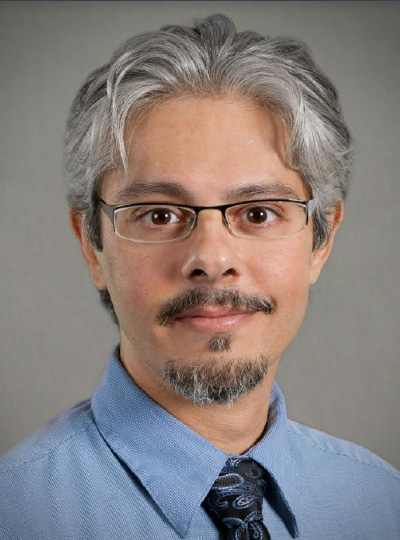
Bijal Shah, MD, MS
Professor, Department of Oncologic Sciences, University of South Florida, Senior Member, Clinical Research Medical Director, Malignant Hematology H Lee Moffitt Cancer Center,
Tampa, FL
Dr. Bijal Shah, MD, MS, is a Senior Member in the Malignant Hematology Department at H. Lee Moffitt Cancer Center and Research Institute. He serves as the Clinical Leader for Mantle Cell Lymphoma (MCL) and Acute Lymphocytic Leukemia (ALL) and is the Clinical Research Medical Director within the Department of Malignant Hematology.
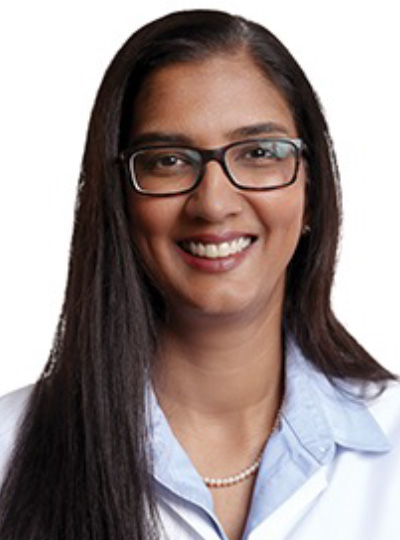
Tanya Siddiqi, MD
Director, Chronic Lymphocytic Leukemia Program, Toni Stephenson Lymphoma Center, Professor, Division of Lymphoma, Department of Hematology & Hematopoietic Cell Transplantation, Medical Director, Lymphoma, City of Hope Orange County, Irvine, CA
Dr. Tanya Siddiqi, MD, is an accomplished hematologist-oncologist who specializes in diagnosing and treating blood cancers, with a particular focus on chronic lymphocytic leukemia (CLL) and B cell non-Hodgkin lymphoma (B-NHL). In addition to her clinical work, Dr. Siddiqi serves as principal investigator on multiple clinical trials exploring targeted therapies, including gene therapy (CAR T cell therapy) and other novel agents, primarily for patients with CLL and B-NHL. Dr. Siddiqi earned her medical degree from Aga Khan University Medical College in Karachi, Pakistan. She completed her internal medicine residency at the University of Connecticut Health Center, followed by fellowships in hematology/oncology at Beth Israel Deaconess Medical Center (Harvard Medical School, Boston) and in hematopoietic stem cell transplantation at City of Hope.
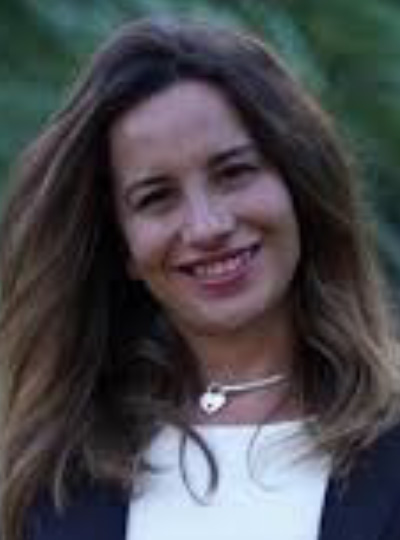
Shireen Sirhan, MDCM, MSc, FRCPC
Associate Researcher, Lady Davis Institute for Medical Research, Hematologist, Myeloproliferative Disorders Clinic, Segal Cancer Centre, Jewish General Hospital, Assistant Professor, Gerald Bronfman Department of Oncology, McGill University, Montreal, QC, Canada
Dr. Shireen Sirhan, MDCM, MSc, FRCPC is a hematologist at the Jewish General Hospital and is an Assistant Professor in the Department of Oncology at McGill University. Her clinical work involves both solid and hematologic malignancies. She studied Microbiology and Immunology with a Minor in Management, followed by Medical School at McGill University, before pursuing residency in Hematology and Medical Oncology. She completed her training in Myeloproliferative Neoplasms with Dr Ayalew Tefferi at the Mayo Clinic, and also holds a MSc degree in clinical trials from the University of London.
Dr. Sirhan co-established the first dedicated Myeloproliferative Neoplasms clinic in Canada at the Jewish General Hospital, providing specialized multidisciplinary care, advanced diagnostic testing, and access to innovative clinical trials. She is a founding member and current President of the Canadian MPN Group, and serves as Vice-President for Research in MPNs with the Groupe Québécois de recherche en LMC-NMP. She also serves on the Scientific Subcommittee on Artificial Intelligence in Hematology for the American Society of Hematology (ASH) and is a member of the ASH Myelofibrosis Guideline Development Panel and multiple Canadian national guideline initiatives for MPNs and mastocytosis.
In 2025, Dr. Sirhan led national efforts to secure the exceptional importation of Ropeginterferon alfa-2b (Besremi) in response to a Pegasys shortage, ensuring continued treatment access for patients with MPNs across Canada. She has authored or co-authored several peer-reviewed publications,. In addition to her academic and clinical work, Dr. Sirhan is actively involved in mentorship, national collaboration, and the development of AI-driven strategies in hematologic oncology.
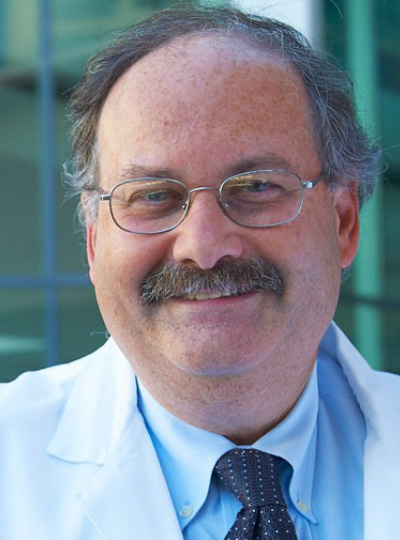
Edward Stadtmauer, MD
Roseman, Tarte, Harrow and Schaffer Families, President’s Distinguished Professor, Perelman School of Medicine, University of Pennsylvania, New York, NYRoseman, Tarte, Harrow and Schaffer Families, President’s Distinguished Professor, Perelman School of Medicine, University of Pennsylvania, New York, NY
Dr Stadtmauer is Director, Hematologic Malignancies Clinical/Translational Research, Division of Hematology/Oncology, Department of Medicine of the Perelman School of Medicine, at the University of Pennsylvania in Philadelphia, PA. He is also the Co-Leader of the NCI designated Abramson Cancer Center Hematologic Malignancies Research Program and the Penn Medicine Hematologic Malignancies Translational Center of Excellence. He has been associated with the University for over 35 years. He has been the principal investigator of the Penn Core Center for the last 25 years of the NIH sponsored Blood and Marrow Clinical Trials Network and is the recent Chair of the steering committee.
Dr. Stadtmauer is widely published on the subjects of multiple myeloma, acute and chronic leukemia, and bone marrow transplantation and CAR T cell therapy. He has been appointed to the editorial boards of the Leukemia, Journal of Clinical Oncology and Bone Marrow Transplantation. His works have appeared in such premier peer-reviewed journals as the New England Journal of Medicine, Journal of Clinical Oncology, Science, JAMA, Nature Medicine, Lancet Oncology, Science Translational Medicine and Annals of Internal Medicine. His work has ranged from conducting the definitive study of autologous bone marrow transplant for breast cancer to pioneering clinical trials with cellular immunotherapy, CRISPR genetic engineering and role of autologous stem cell transplantation in myeloma.. Dr. Stadtmauer graduated with an AB degree with distinction in biochemistry from Cornell University and then completed his MD at the University of Pennsylvania School of Medicine. He served his internship and residency in internal medicine at the Albert Einstein College of Medicine in the Bronx, NY. He completed his Fellowship in Hematology/Oncology at the University of Pennsylvania where he co-founded the Bone Marrow Transplant Program in 1987 and the Myeloma Program in 1999. He has been awarded the DuPont Guerry, IV, MD Award for Outstanding Mentorship, the International Waldenstrom’s Macroglobulinemia Foundation’s Bruce Waterfall Memorial Award and is an Elected Fellow, American Association for the Advance of Science (AAAS).
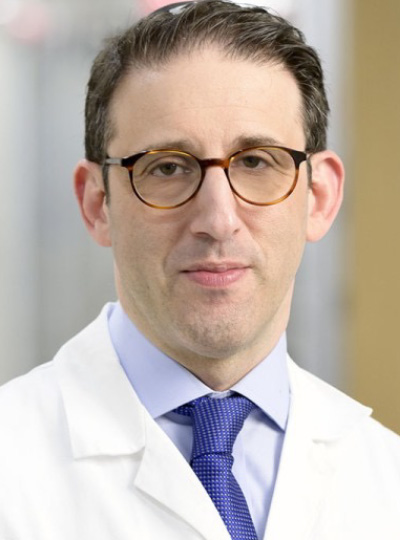
Eytan Stein, MD
Director, Program for Drug Development in Leukemia, Chief, Leukemia Service, Memorial Sloan Kettering Cancer Center New York, NY
Dr. Eytan Stein, MD is Chief of the Leukemia Service and Director of the Program for Drug Development in Leukemia within the Division of Hematologic Malignancies at Memorial Sloan Kettering Cancer Center.
Dr. Stein received his medical degree from Northwestern University in Chicago, where he also completed his internal medicine residency. He then completed his fellowship in medical oncology and hematology at Memorial Sloan Kettering. Dr. Stein specializes in the treatment of acute and chronic leukemias, myelodysplastic syndromes, and myeloproliferative neoplasms. His research focuses on developing innovative therapies for acute myeloid leukemia (AML), including small molecule inhibitors that more precisely and effectively target the disease. He serves as the principal investigator for numerous clinical trials aimed at improving outcomes for patients with AML and other blood cancers.
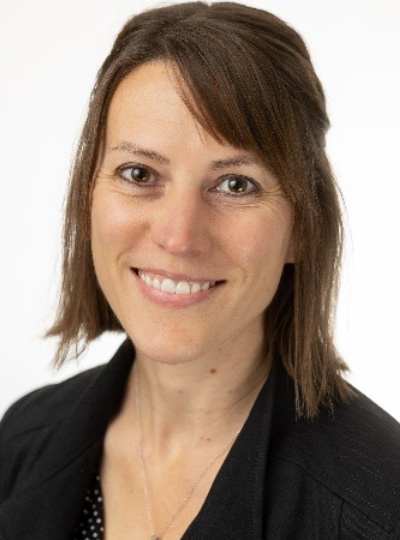
Deborah Stephens, DO
Associate Professor of Medicine, Lineberger Comprehensive Cancer Center, The University of North Carolina Medical Center, Chapel Hill, NC
Dr. Deborah Stephens, MD is the Director of the Chronic Lymphocytic Leukemia (CLL) Program and the CLL/Lymphoma Research Group at the University of North Carolina. Dr. Stephens leads a subspecialty CLL-focused clinic.
Her primary research interests include developing targeted therapies for CLL and lymphoma, studying therapy resistance, and developing supportive therapies for CLL complications. She is principal investigator on multiple clinical trials including the international chair of the SWOG S1925 EVOLVE CLL Study. She leads the CLL Subcommittee within the SWOG Group. Dr. Stephens has served on the CLL NCCN Guidelines Panel and the Medical Advisory Board of the CLL Society.
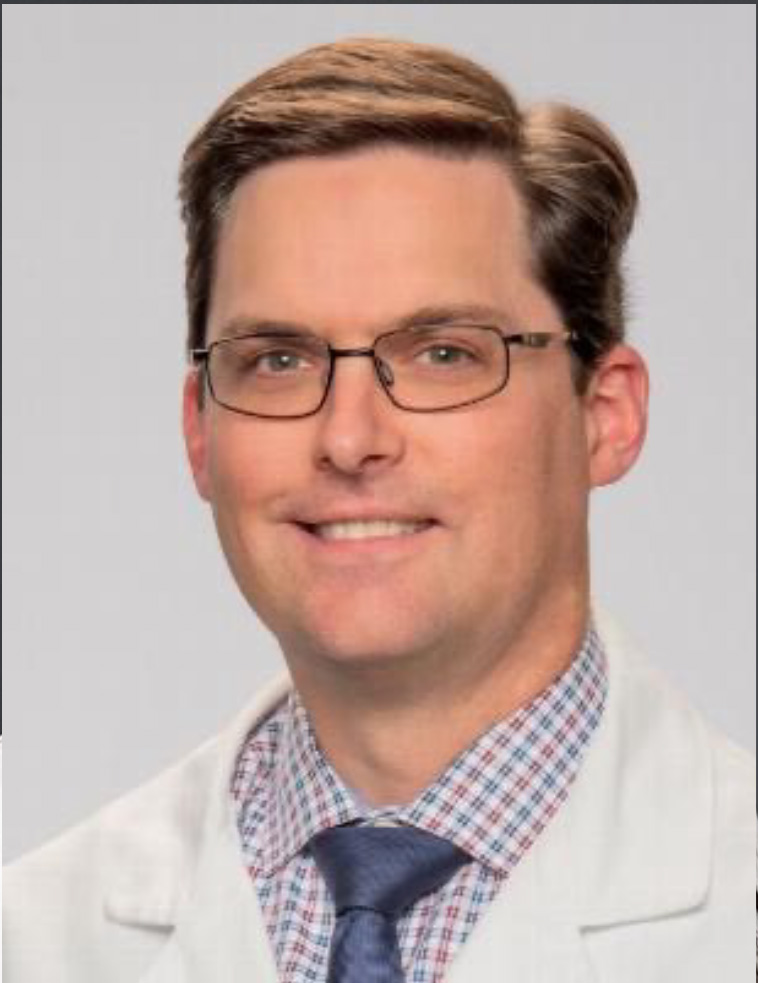
Stephen Strickland, MD, MSCI
Director of Leukemia Research, Sarah Cannon Research Institute, Hematologist-Oncologist, Tristar Bone Marrow Transplant, Nashville, TN
Dr. Stephen Strickland, MD, MSCI is the Director of Leukemia Research for the Sarah Cannon Transplant & Cellular Therapy Network. In his role, Dr. Strickland provides scientific leadership and oversees Sarah Cannon’s robust portfolio of clinical trials in leukemia, myelodysplastic syndromes, and related diseases. He is a board-certified, medical oncologist and hematologist at Tristar Bone Marrow Transplant, located in Nashville, Tennessee. Dr. Strickland's research interests revolve around translational research and early phase clinical trials for the treatment of acute leukemia (AML, ALL) and myeloid malignancies (MDS, MPN) Dr. Strickland is an internationally respected leukemia researcher with more than 100 peer-reviewed scientific publications and abstracts. He received his Doctor of Medicine from Louisiana State University School of Medicine in New Orleans and completed his internship/residency (Internal Medicine), a clinical fellowship in Hematology/Oncology and earned a Master of Science in Clinical Investigation at Vanderbilt University Medical Center.
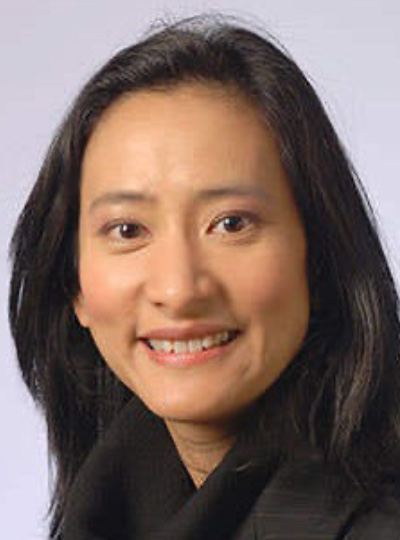
Attaya Suvannasankha, MD
Associate Professor of Clinical Medicine, Department of Medicine, Division of Hematology/Oncology, Full member, Hematopoiesis & Hematologic Malignancies, Experimental and Developmental Therapeutics, Indiana University School of Medicine, Indiana University Melvin and Bren Simon Comprehensive Cancer Center, Indianapolis, IN
Dr. Attaya Suvannasankha, MD is an Associate Professor of Clinical Medicine in the Department of Medicine, Division of Hematology/Oncology at the Indiana University School of Medicine. Dr. Suvannasankha’s research focuses on the molecular mechanisms of drug resistance in hematologic malignancies.
Dr. Suvannasankha earned her medical degree at Chulalongkorn University. She then completed an internship and residency at Albert Einstein College of Medicine of Yshiva University, Bronx NY and a fellowship at Roswell Park Cancer Institute.
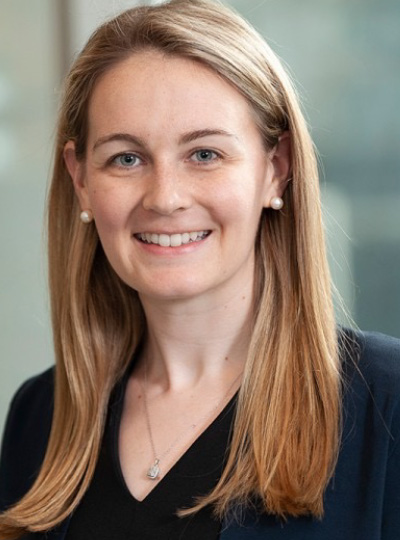
Meghan Thompson, MD
Assistant Attending Physician, Memorial Sloan Kettering Cancer Center, New York, NY
Dr. Meghan Thompson, MD is a medical oncologist specializing in the care of patients with chronic lymphocytic leukemia (CLL), Richter transformation, lymphoproliferative disorders, and other leukemias. Dr. Thompson is passionate about educating patients and their families on their diagnosis and treatment options, as well as learning what is most important to each patient as they begin their care journey with her.
At each visit, she prioritizes listening to patients’ concerns and answering their questions. She values teamwork at Memorial Sloan Kettering Cancer Center (MSKCC). Dr. Thompson completed her medical degree at The Ohio State University College of Medicine. She pursued her residency in Internal Medicine at the Hospital of the University of Pennsylvania and subsequently completed her fellowship in Hematology and Medical Oncology at MSKCC. She is board-certified in Hematology, Medical Oncology, and Internal Medicine, and her research focuses on improving treatment outcomes and understanding the genetic mechanisms influencing therapies in CLL and related conditions
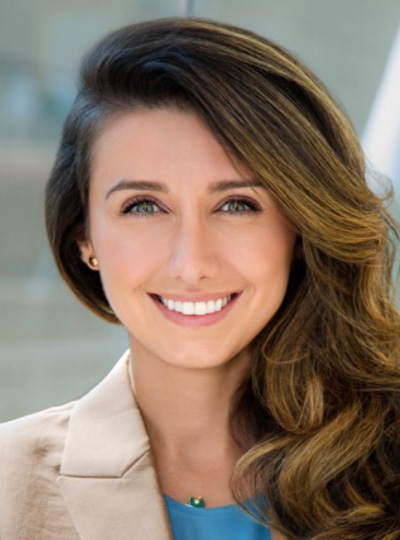
Seda Tolu, MD
Assistant Professor of Medicine, Division of Hematology and Oncology, Columbia University Medical Center, New York Presbyterian, New York, NY
Dr. Seda Tolu, MD is an Assistant Professor of Medicine in the Division of Hematology and Oncology and part of Columbia's lymphoma group. She completed her fellowship in Hematology & Oncology at Columbia University Irving Medical Center. Dr. Tolu’s translational research interests are focused on targeting lymphoma biology by identifying synergistic novel combination therapies specific to 9p amplified lymphomas and T-cell lymphomas.
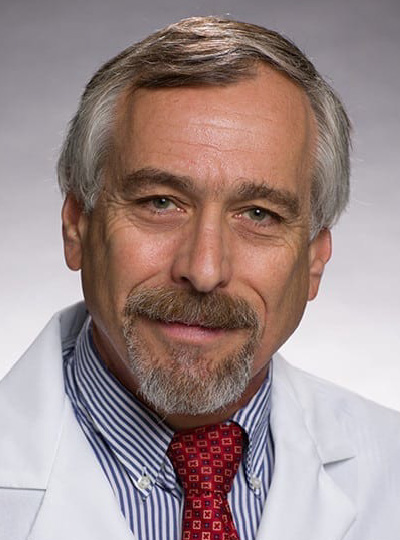
David Vesole, MD
Director, Stem Cell Transplant and Cellular Immunotherapy Program, MedStar Georgetown University Hospital, Professor of Medicine, Georgetown University, Co-director, Myeloma Division, Director, Myeloma Research, John Theurer Cancer Center at Hackensack University Medical Center, Seattle, WA
Dr. David H. Vesole, MD is director of the Stem Cell Transplant and Cellular Immunotherapy program at MedStar Georgetown University Hospital and a professor of Medicine at Georgetown University. Concurrently, he is co-director of the Myeloma Division and director of Myeloma Research at the John Theurer Cancer Center at Hackensack University Medical Center. Board certified in medical oncology and hematology and a Fellow of the American College of Physicians, Dr. Vesole is active in several professional organizations including the American Society for Blood and Marrow Transplantation, the American Society of Clinical Oncology and the American Society of Hematology. He previously served as co-chair of the Eastern Cooperative Oncology Group Myeloma Committee and the Center for International Blood and Marrow Transplant Research (CIBMTR) Plasma Cell Disorder Committee where he currently sits on the Nominating Committee. He is an inspector for the Foundation for the Accreditation of Cellular Therapy (FACT) and serves on FACT's Clinical Standards, Accreditation and Data Management Task Force Committees. Additionally, Dr. Vesole is a member of the International Myeloma Foundation Scientific Advisory Board and the International Myeloma Working Group, a board member of the New York City chapter of the Leukemia and Lymphoma Society, and a reviewer, Leukemia & Lymphoma Society Translational Grant Review Committee. Dr. Vesole has authored more than 200 articles in peer-reviewed medical journals and book chapters. He also serves as a reviewer for several journals, including the American Journal of Hematology, Blood, Journal of Clinical Oncology, Biology of Blood and Marrow Transplant, Bone Marrow Transplant, Leukemia, Leukemia and Lymphoma and Clinical Lymphoma Myeloma & Leukemia. Dr. Vesole has presented his research at medical meetings and symposia nationally and internationally.
Dr. Vesole earned a medical degree at Northwestern University and a doctorate in immunology and microbiology at the Medical University of South Carolina. His postdoctoral medical training included a residency in internal medicine and a fellowship in Hematology and Oncology at University of Iowa Hospitals and Clinics.
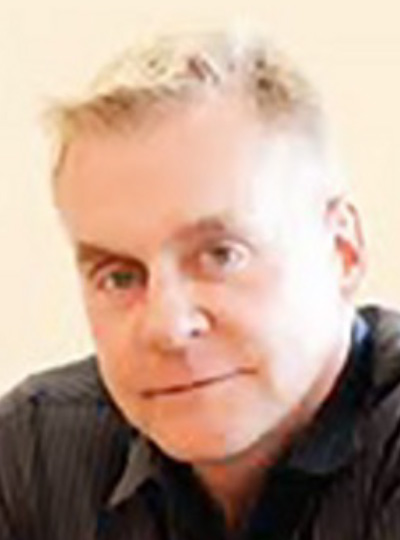
Wyndham H. Wilson, MD, PhD
Chief, Lymphoma Therapeutics Section, Lymphoid Malignancies, Branch Center for Cancer Research National Cancer Institute, Bethesda, MD
Dr. Wyndham H. Wilson, MD, PhD is Chief of the Lymphoma Therapeutics Section within the Lymphoid Malignancies Branch at the Center for Cancer Research, National Cancer Institute (NCI). He earned his medical degree and completed his residency at Stanford University and pursued his fellowship in oncology at the NCI, NIH.
His interest is in the pathobiology and treatment of lymphomas through precision medicine studies that uniquely integrate molecular biology and clinical science. He has had a special focus on drug scheduling and pharmacodynamics that led to the development of Dose-adjusted-EPOCH-R; now a standard for untreated aggressive B-cell lymphomas including Burkitt lymphoma, Primary Mediastinal B-cell Lymphoma, Gray Zone lymphoma, Double-hit B-cell lymphomas, HIV-associated diffuse large B-cell lymphoma (DLBCL), and high-risk DLBCL NOS. His efforts have involved first-in-class clinical studies in diffuse large B cell lymphoma (DLBCL) of taxanes (paclitaxel), BH3-mimetics (navitoclax), proteosome inhibitors (bortezomib) and BTK inhibitors (ibrutinib) targeting B-cell receptor (BCR) signaling.
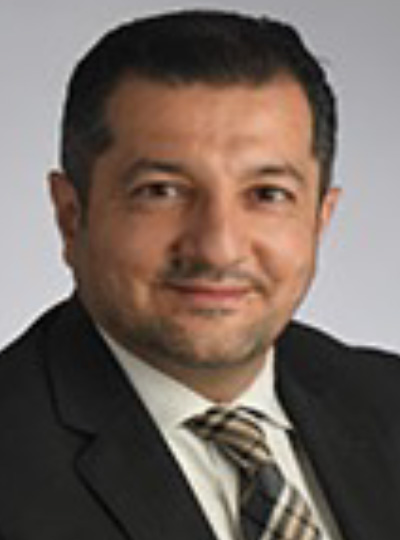
Abdulraheem Yacoub, MD
Professor, Hematologic Malignancies and Cellular Therapeutics, The University of Kansas Medical Center, Kansas City, KS
Dr. Abdulraheem Yacoub, MD, is a Professor of Medicine at University of Kansas Medical Center. Dr Yacoub obtained his medical degree from the University of Jordan, Amman, Jordan, in 2003 and then completed his internship at King Hussein Cancer Center, Amman, Jordan, in 2005. He then moved to the USA where he completed both an internship and his residency in internal medicine at the University of Saint Louis, St. Louis, MO. Dr Yacoub then undertook his fellowship in hematology/oncology at the University of Arkansas for Medical Sciences, Little Rock, AR, in 2011.
Dr Yacoub has membership for various societies, namely the American Society of Hematology, the American Society of Clinical Oncology, and the Myeloproliferative Diseases Research Consortium. Dr Yacoub’s research interests lie primarily in myelofibrosis, myeloproliferative disorders and their treatments.
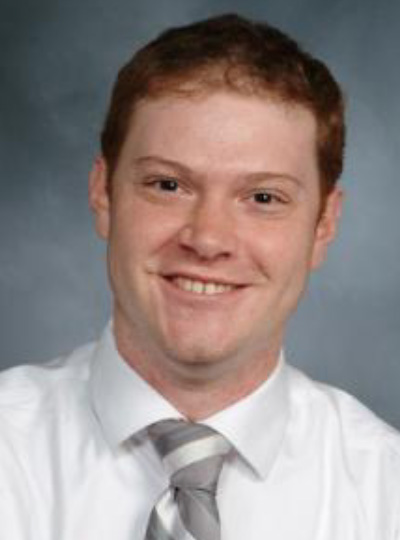
Samuel Yamshon, MD
Assistant Professor of Medicine, Weill Cornell Medical College New York Presbyterian Hospital New York, NYSamuel Yamshon, MD Assistant Professor of Medicine, Weill Cornell Medical College New York Presbyterian Hospital New York, NY
Dr. Samuel Yamshon, M.D. is an Assistant Professor of Medicine at Weill Cornell Medicine/New York Presbyterian Hospital. Dr. Yamshon cares for patients with blood cancers with a specific focus on lymphoma and improving outcomes for patients using innovative treatments like cellular immunotherapies including CAR T-cell therapy.
Dr. Yamshon received his B.A. from Columbia University and completed his medical training at the University of California, Davis. He returned to New York to train in Internal Medicine at Weill Cornell Medicine, where he also completed his fellowship in Hematology and Oncology. At Weill Cornell Medicine, he specializes in treating patients with lymphoma using cellular therapies including bone marrow transplantation and CAR T cell therapy, and is involved in clinical research dedicated to improving outcomes for patients with lymphoma. He has been involved in lymphoma research for over a decade, co-authoring numerous publications and several presentations at national meetings. Dr. Yamshon is also an Editorial Fellow for the journal Leukemia & Lymphoma. He has received multiple research grants including the American Society of Clinical Oncology (ASCO) Young Investigator Award and the Lymphoma Research Foundation (LRF) Scientific Research Mentoring Program.
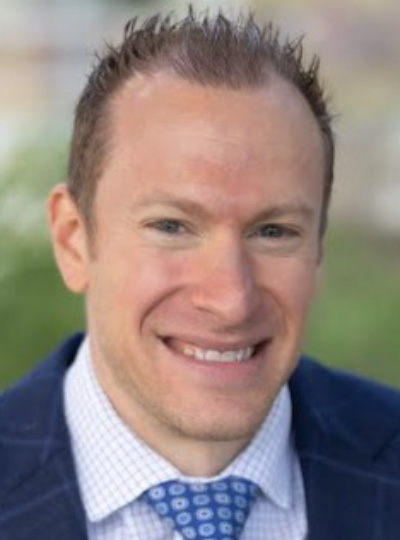
Joshua Zeidner, MD
Associate Professor of Medicine, Chief, Leukemia Research, Associate Chief of Research, Hematology Director, Clinical Cancer Research Commercial Integration UNC Lineberger Comprehensive Cancer Center, The University of North Carolina School of Medicine, Chapel Hill, NC
Dr. Joshua Zeidner, MD is an Associate Professor of Medicine at the University of North Carolina School of Medicine, Lineberger Comprehensive Cancer Center. Dr. Zeidner is the inaugural Director of Clinical Cancer Research Commercial Integration at Lineberger Comprehensive Cancer Center and serves as the Chief of Leukemia Research and Associate Chief of Research within the Division of Hematology at University of North Carolina. Dr. Zeidner earned his medical degree from New York Medical College and pursued his residency in Internal Medicine at Johns Hopkins University School of Medicine. He completed his fellowship at the Johns Hopkins University Sidney Kimmel Comprehensive Cancer Center.
Dr. Zeidner specializes in the management of patients with acute myeloid leukemia (AML) and myelodysplastic syndrome (MDS). His research focuses on developing novel therapies and innovative methods to improve clinical outcomes in these conditions. As the Chief of the Leukemia Research Program at University of North Carolina, he oversees and leads a clinical and translational research program which offers a multitude of cutting-edge early phase clinical trials for patients with acute and chronic leukemia’s.

